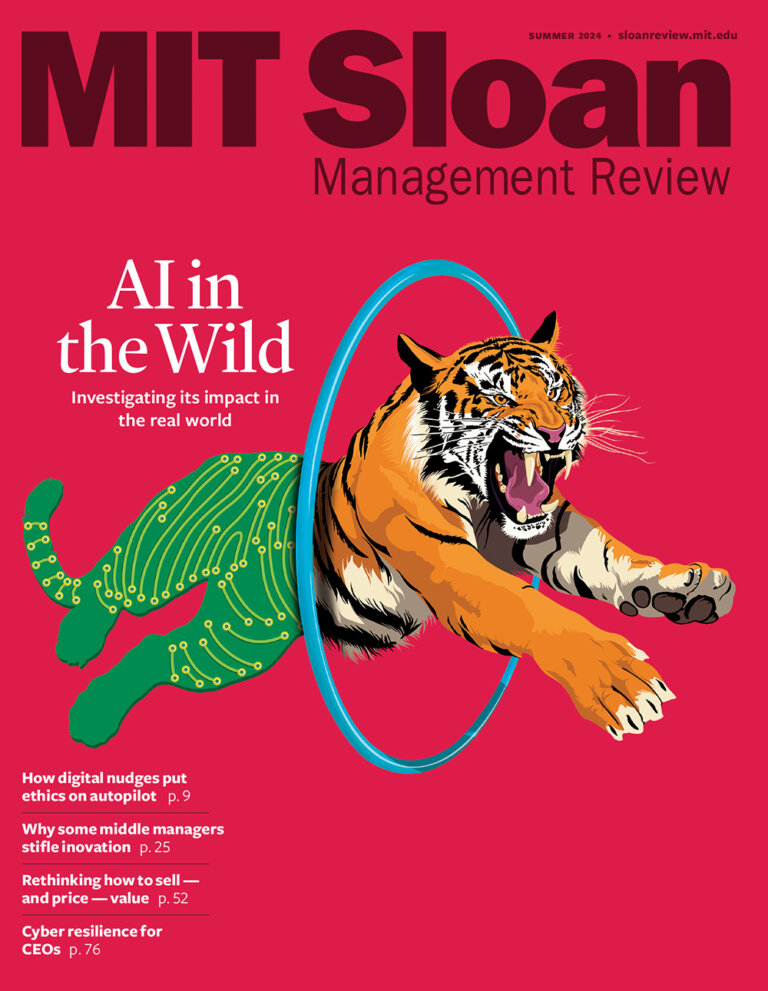- How it works


Useful Links
How much will your dissertation cost?
Have an expert academic write your dissertation paper!
Dissertation Services

Get unlimited topic ideas and a dissertation plan for just £45.00
Order topics and plan

Get 1 free topic in your area of study with aim and justification
Yes I want the free topic

100s of Free Management Dissertation Topics and Titles
Published by Grace Graffin at January 6th, 2023 , Revised On April 16, 2024
Introduction
The subject of management involves an in-depth understanding of the various aspects of business management, such as employee management, risk management, organisational behaviour, and many more.
When choosing a topic for your management dissertation, make sure to consider diverse topics that explore both the theoretical and practical aspects of management.
We understand that getting a dissertation topic approved can be extremely challenging as academic supervisors require students to research a unique case.
This is where our team of writers comes into play. Our writers can up with exciting and manageable management dissertation topics to help get the juices flowing in your head so you can write your dissertation on a unique and engaging topic.
You may also want to start your dissertation by requesting a brief research proposal from our writers on any of these topics, which includes an introduction to the topic, research question , aim and objectives , literature review along with the proposed methodology of research to be conducted. Let us know if you need any help in getting started.
Check our dissertation examples to get an idea of how to structure your dissertation .
Review the full list of dissertation topics for here.
How to Select the Best Management Dissertation Topic?
A dissertation topic must be selected based on research interests, availability of data, time limitations, and the research’s scope and significance. The following management dissertation topics are carefully shortlisted while considering all these parameters. Please review these topics and let us know if you have any queries.
Also Read: Operations Management Dissertation Topics
- International Development Dissertation Topics
- Cooperate Governance Dissertation Topics
- Business Intelligence Dissertation Topics
- Business Information Technology Dissertation Topics
- International Business Dissertation Topics
- Business Management Dissertation Topics
- Business Psychology Dissertation Topics
- Business Law Dissertation Topics
- Project Management Dissertation Topics
- Business Dissertation Topics
- HRM Dissertation Topics
- Operations Management Dissertation Topics
2024 Management Research Topics
Topic 1: an evaluation of organizational change management- why do people tend to oppose change.
Research Aim: The research will aim to assess the structure of organizational change management and to find the reasons why people resist or oppose the changes in an organization. There are many reasons through which change in organization’s management becomes important but some employees’ does not accept that changes. There are many reasons why people resist changes on organization. In certain circumstances, resistance to change might be beneficial. Resistance to change is, in fact, a crucial feedback mechanism that must not be neglected.
Topic 2: Investigating the effectiveness of customer relationship management in airlines
Research Aim: The research will aim to study the efficiency of CRM in airlines. Customer relationship management has evolved into a critical technique used by every corporation to better its operations and obtain a competitive advantage over competitors. Customer relationship management has evolved into a key priority for airline firms and an integral part of airline businesses’ corporate strategy to distinguish themselves from rivals in the eyes of the consumer. The goal of facility organisations, such as airlines, is to provide services that attract and maintain satisfied, loyal customers who promote the airline.
Topic 3: How does leadership affect employees’ productivity? A case of IT firms
Research Aim: This research will focus on leadership positions in IT organisations with the goal of increasing staff productivity and performance. Leadership is essential for increasing employee retention, career drive, and efficiency. Most companies’ progress is accelerated by effective leadership. As a result, it is critical to organisational success. Employee performance, on the other hand, is a critical pillar of every firm, and companies must examine the variables that contribute to great performance. Leadership is based on confidence, which is based on skill, sincerity, ethics, transparency, reactivity, empathy, and kindness.
Topic 4: The effect of organisation advancement tools on business performance
Research Aim: The research will aim to find the effect of organization advancement on business performance. Organizational tools are objects that assist you in organising your workspace, resources, and tasks in order to make your workday more effective. Physical instruments, planners, and software platforms are examples of what they can be. Organization advancement tools are a great source to improve your business performance as they help you in managing your daily tasks and workforce.
Topic 5: The importance of leadership and social skills in new entrepreneurs: An investigative study
Research Aim: The research will aim to investigate the importance of leadership and social skills in new entrepreneurs. Developing talent, introducing innovative goods and services, delivering efficiency, and gaining market share all benefit from improved leadership qualities. If you wish to stay small, you might be able to get away with not growing your leaders. Otherwise, it will restrict your progress. Social skills enable entrepreneurs to interact with customers more effectively, resulting in more agreements and more profitability.
Covid-19 Management Research Topics
Crisis management during covd-19.
Research Aim: This study will identify crisis management aspects during COVD-19, including its challenges and solutions.
Business management during COVID-19
Research Aim: This study will review business executives’ challenges in various scale industries and how they are recovering from the loss. How far did they succeed?
Hospital and medicine management during COVID-19
Research Aim: This study will highlight the role of hospital management during COVID-19, the challenges they came across, and the ways to overcome those challenges.
Educational management during COVID-19
Research Aim: This study will address the issues faced by students and educational institutes. How are they trying to overcome the challenges of imparting education during the coronavirus pandemics?
Maternal health care management during COVID-19
Research Aim: The lockdown situation has been an issue of concern for the patients, including pregnant women. This study will address the role of Maternal health care management during COVID-19.
Management Dissertation Topics for 2023
Topic 1: analyzing the traditions and trends in public administration and management in post-wwii europe.
Research Aim: The purpose of the research will be to analyze the characteristics of cultural and national communities that have influenced public administration and management in the 1970s and 1980s in Europe. The study will be carried out using a systematic literature review.
Topic 2: The Impact of Gender-inclusive Gatekeeping and Predecessors Influence on the Success of Female CEOs
Research Aim: The purpose of the research will explore how local organisational agents and contexts can help women leaders overcome barriers and achieve success at higher levels in corporate firms. The study will focus on CEO succession events and predecessor CEOS factors and their influence on women post-succession. The research design will be developed qualitatively.
Topic 3: Analysing the Impact of Daily Psychological Power on Organisational Leaders
Research Aim: The research will use quantitative techniques to analyze power-holders relational and interdependent work contexts. The study will examine the effect of daily psychological power using the factors of abusive behaviour and perceived incivility.
Topic 4: Examining the Impact of Cultural Diversity on Interaction Process and Performance
Research Aim: Using quantitative techniques, the research will analyse the interaction process and performance factors in two groups of employees in the services industry – homogenous and culturally diverse. The effectiveness in operation and arrangements will be examined.
Topic 5: Analyzing the Impact of ‘Voice’ and ‘Silence’ on Destructive Leadership
Research Aim: The research will examine the limited and biased view of silence in management literature. The study will also analyse the impact of silence in an organisation in terms of a functional value using quantitative research techniques. Furthermore, how silence in organisations can be used as a strategic response will be discussed.
Topic 6: Examining the Relationship between Productivity, Management Practices, and Employee Ability in the UK Setting
Research Aim: Using quantitative techniques, the study will analyse a relationship between productivity, management practices, and employee ability using data from management practices surveys and employees’ longitudinal earnings records.
Topic 7: Analysing the Factors that Impact International Differences in Gender Pay Gap
Research Aim: The research will use quantitative techniques to analyse microdata from various countries between 1980 and 2010. The study will use the factors of wage structures, net supply, wage compression, collective bargaining coverage, and unionised wage setting to identify the lower gender pay gap internationally.
Topic 8: The Impact of Psychosocial Hazards on Workplace Risk Management
Research Aim: The study will investigate workplace risk management practices in industry sectors with a high risk of musculoskeletal disorders (MSDs) and mental health disorders (MHDs) and the extent to which they may rise from psychosocial hazards. The research will be conducted using qualitative research techniques.
Strategic Management and Organisational Behavior Dissertation Topics
Strategic management and organisational behaviour can be described as the actions a firm takes to achieve its business objectives primarily derived from competitive markets’ dynamic behaviour. Following are some interesting dissertation topics under this field of study;
Topic 1: The Impact of Organisational Goals on Organisation Behavior
Research Aim: The primary focus of this research will be to combine factors from the theory of action, phases and self-determination theory to develop a motivational model that will explain the relationship between organisational goals setting process that lead to organisational behaviour. The research will be conducted using mixed methods of research techniques.
Topic 2: Integrating the Principles of Strategic Human Capital and Strategic Human Resource Management to Improve Organisational Performance
Topic 3: comparing the impact of family and non-family firm goals on strategy, family and organisational behavior.
Research Aim: This research will analyse the differences between family and non-family business goals and their impact on how businesses develop strategies. Also, the research will assess how these developed strategies would affect family and organisational behaviour. This research will use quantitative research techniques.
Topic 4: Analyzing the Effect of Strategy, Innovation, Networks and Complexity on Organisational Adaptability – The Mediating Effect of Leadership
Research Aim: The current study will use empirical analysis to examine the effects of strategy, innovation, networks, and complexity of organisational adaptability using leadership as a mediation factor.
Topic 5: Examining the Effect of Appointment of a Racial Minority Female CEO on White Male Top Manager Intrapsychic and Behavioral Responses
Research Aim: This research will examine white male managers’ behavioural responses to a female racial minority CEO’s appointment. The behaviour that the research will analyse is the amount of help that the white male top manager provides to their fellow executives. The research will be conducted using quantitative techniques.
Topic 6: Analysis of the Effectiveness of an Affect-Based Model to Portray Recipients Responses to Organisational Change Events
Research Aim: The study will use the Affect-Based Model developed by Oreg et al. (2016) to analyse if it is useful in documenting and portraying the recipient responses to organisational change events. The research will use factors of valence and activation to assess the effectiveness of the model. The study will be conducted using quantitative techniques.
Topic 7: Evaluating the Relationship between the personality of a CEO and Employee Motivation
Research Aim: This research will investigate the relationship between a CEO’s personality and employee motivation. The core of this study will be to assess whether a CEO’s character possesses the power to influence employee motivation or not. Case studies from various companies will be used in this study.
Topic 8: Assessing the Role of Managers in Bringing and Implementing Technological Change in an Organisation
Research Aim: This research will focus on how managers implement technological change in their organisations. Change management is challenging as not all employees are open to accepting change. This research will focus on various ways through which managers successfully implement technological change in their companies.
Topic 9: An Analysis of Organisational Change Management: Why Employees Resist Change?
Research Aim: This research will focus on why employees resist change in organisations, i.e., why employees dislike change. Different causes and factors will be discussed in this study, and the research will conclude why employees do not wholeheartedly accept the change.
Knowledge Management Dissertation Topics
The importance of knowledge management for organisations can’t be understated because this aspect of management enhances the workforce’s capabilities and overall productivity. It leads to a competitive advantage and provides the basis for differentiating an organisation from its competitors. Some interesting dissertation topics under this field are;
Topic 1: Examining the Impact of Enterprise Social Networking Systems (ESNS) on Knowledge Management and Organisational Learning
Research Aim: The research will investigate the effect of ESNS on knowledge management processes and organisational learning. The research will use knowledge creation and sharing to play the mediating role in analysing the proposed relationship. The proposed study will use empirical research methods.
Topic 2: A Review of Knowledge Management Research
Research Aim: The research paper will use a systematic literature review technique for the proposed study. The research will review the last twenty years of knowledge management literature to assess the presence of bias in explaining knowledge integration over research by exploring knowledge differentiation processes.
Topic 3: The Impact of the Internet of Things (IoT) on Innovation and Knowledge Management Capacity
Research Aim: The purpose of this research will be to investigate the plausible relationship between knowledge management systems, open innovation, knowledge management capacity, and innovation capacity in firms. The research will be conducted using empirical techniques to draw reliable conclusions.
Topic 4: The Impact of Strategic Knowledge Management on MNC and their Subsidiaries Performance
Research Aim: The research will develop a model to test the possibility of a relationship between strategic knowledge management (SKM) processes and organisation performance compared between multinational companies and their subsidiaries. The research will also analyse the impact of relational context on knowledge creation and transfer.
Topic 5: Analyzing the Relationship between Knowledge Management Practices and Knowledge Worker Performance - The Mediating Role of Organisational Commitment
Research Aim: The study will analyse the role of knowledge management practices to address the issues of insufficient organisational commitment and knowledge workers’ performance in the UK’s public sectors. The proposed study will use quantitative research techniques to fulfil its aim and objectives.
Topic 6: The Relationship between Knowledge Management Processes and Sustainable Competitive Advantage in Private Business Schools in the UK
Research Aim: The proposed research will explore the impact of knowledge management processes on sustainable completive advantages by using knowledge-based view (KBV) and resource-based view (RBV) as mediators in the relationship. The research will be conducted using quantitative techniques of data collection (i.e. questionnaire) and analysis (i.e. structural equation modelling).
Topic 7: The Impact of Strategic Knowledge Management on Manufacturing Firm’s Performance
Research Aim: The purpose of the study will be to empirically investigate the relationship between the availability and use of IT solutions for strategic knowledge management and a manufacturing firm’s performance, which will be measured in unit production. The research will use the resource-based view and the knowledge-based theory to develop a conceptual framework to analyze this relationship’s effect.
Topic 8: Evaluating how Knowledge Management Impacts Company Performance: A Case Study of Sainsbury
Research Aim: This research will discuss the basic concepts of knowledge management. The study will also discuss the impact knowledge management has on a company’s performance, i.e. how it helps companies achieve their goals. The main focus of this research work will be on Sainsbury’s knowledge management framework.
Topic 9: Knowledge Management as a Core Competency? Evaluating the Application and Benefits of Knowledge Management
Research Aim: This research will uncover how companies utilise knowledge management as their core competency and how it benefits their business operations. This study’s main focus will be on applying the various concepts of knowledge management and their implication for businesses.
Topic 10: Exploring the Managerial Concerns and Issues in Knowledge Management and Their Impact on Organisations
Research Aim: This research will explore the managerial concerns and issues related to knowledge management. The study will also focus on assessing the impact of these issues on businesses and how they can influence day-to-day operations. This will be an evidence-based study where evidence from different companies and various situations will be evaluated.
Leadership and Management Information System Dissertation Topics
Leadership drives the organisational agenda and is regarded as one of the most influential factors in streamlining organisations’ processes. Good leadership results in better performance of any organisation because it gives direction to the business activities under the market conditions and requirements.
Similarly, management information systems are pivotal to any organisation’s success and successfully implementing them can benefit the organisation in many ways. Following are some dissertation topics under the subject of leadership and management information systems;
Topic 1: The Role of Information Systems (IS) in Enterprise Architecture and its Impact on Business Performance
Research Aim: This study will examine the relationship between IS Enterprise Architecture and business performance using technical alignment and IS capabilities mediators. This research will be conducted using quantitative techniques to fulfil its aim.
Topic 2: Exploring The Relationship between Ethical Leadership and Employee Knowledge Sharing
Research Aim: This research will use social learning theories and self-determination to investigate the relationship between ethical learning and employee knowledge sharing. The study will be conducted using empirical research techniques.
Topic 3: Analysing the Impact of Relationship Leadership and Social Alignment on Information Security Systems Effectiveness in Private Organisations
Research Aim: This research will use social capital theory as its theoretical foundation to explore the impact of relational leadership on social alignment between business and IT executives. The relational model will study the factors of integrated knowledge, information security system effectiveness, and organisational performance. This research will use empirical techniques.
Topic 4: Examining the Relationship between Operating Room (OR) Leadership and Operating Staff Performance
Research Aim: This research will analyse the relationship between Operating Room leadership and operating staff performance. This will be done using emotional intelligence and collaboration variables to assess staff performance, using recovery numbers. The relationship will also be examined through the mediating role of leadership principles. The data will be collected and assessed using quantitative research techniques.
Topic 5: The Role of Transformational Leadership as a Mediating Variable in the DeLone and McLean Information Success Model.
Research Aim: The research will use the DeLone and McLean Information Success Model to analyse if productivity software implemented in an organisation can improve its performance. However, the research will also evaluate the model and propose modifications to include transformational leadership as a mediating factor in the information success model. The research will be quantitative in nature.
Topic 6: Assessing the Role of Leadership in an Organisation to Help Adopt Advanced Technological Systems
Research Aim: This research will assess the role of leadership in an organisation to help companies realise the importance of innovative, technologically advanced systems. Many companies today are still naive to the ever more important role of technology. Thus this research will aim to help companies adopt innovative technological systems through leadership. The research will be evidence-based in nature.
Topic 7: Evaluating How Changing Business Leadership Impacts Technological Organisational Performance
Research Aim: Changing leadership in organisations can prove a disaster if not handled properly. The transition process is extremely challenging, and companies should have the capability to handle this phase. This research will explore how their decision to change leadership impacts technological and organisational performance and how to optimise the process. This research will be quantitative in nature.
Topic 8: Can Information Systems in Organisations Be Considered a Competitive Advantage?
Research Aim: Information systems, if implemented successfully, benefit organisations immensely. The impact that an information system has and its results help companies stay ahead of their competitors. This research will assess how companies can turn their information systems into a competitive advantage, and most importantly, whether they or not information systems should be considered a competitive advantage.
Topic 9: Understanding the Leadership Challenges of Implementing and Managing an Advanced Information System in an Organisation
Research Aim: This research will help explain the challenges that managers and the entire leadership of an organisation face when implementing an advanced information system. Bringing a change in a company is challenging, and throw in a technology to implement, the process becomes even more challenging. This study will explore in detail all related challenges through quantitative research.
Topic 10: Do all Business Processes in an Organisation need Information System Management?
Research Aim: It is often argued that not all business processes require information systems. However, when talking about today’s world and the technological advancements taking place, it is recommended that business processes in organisations adopt the technology. This research will be a comparative analysis of whether companies are successful and profitable with information systems or without them.
Also Read: Business Dissertation Topics
Order a Proposal
Worried about your dissertation proposal? Not sure where to start?
- Choose any deadline
- Plagiarism free
- Unlimited free amendments
- Free anti-plagiarism report
- Completed to match exact requirements

Organisational Culture and International Business Dissertation Topics
Organisational culture shapes the work ethics and helps in defining the professional image of organisations. Organisational culture plays a huge role in international business.
Organisations that adopt the country’s culture they are operating in are known to run their operations more successfully. The following topics are related to organisational culture and international business and help students choose an appropriate topic according to their interests.
Topic 1: The Impact of Organisational Culture of Collaborative Networks Influence on IT Governance Performance in Large Enterprises
Research Aim: This research will explore the influence of collaborative networks’ organisational culture on IT governance performance. The study will use a case study to analyse multinationals as they have a wide working network. The purpose of the research will be to determine whether or not organisational culture helps businesses effectively use IT in business operations. The research will be conducted using mixed methods research.
Topic 2: Analysing the Relationship between Supervisor’s Job insecurity and Subordinates’ Work Engagement
Research Aim: The purpose of this research is two-fold. The research will analyse the relationship between the supervisor’s job insecurity and subordinates’ work engagement using a mediator and a moderator. The research will first examine the mediating role of subordinate’s pro-social voice between supervisor job insecurity and subordinates’ work engagement. Next, the research will examine the moderating role of organisational culture between the supervisor’s job insecurity and sub-ordinates pro-social voice. The research will be conducted through quantitative techniques.
Topic 3: Analysing the Impact of Individual Perception of Organisational Culture on the Learning Transfer Environment
Research Aim: The research will be conducted empirically to assess the relationship between culture (as perceived by employees) and the work environment based learning factors (i.e. learning transfer environment [LTE]) in the organisation). LTE is measured using feedback and coaching factors that received resistance or openness to chance, personal outcomes, and supervisor and peer support.
Topic 4: The Role of Organisational Culture on the Development of Psychological Distress in the Workplace
Research Aim: The purpose of the study will be to analyse how organisational culture may cause the symptoms of psychological distress in the workforce. The study will use corporate culture and work organisation conditions as base factors to relate them to employees’ psychological distress. The research will be conducted using quantitative research techniques.
Topic 5: Analysing the Role of Leadership and Organisational Culture
Research Aim: The research will examine the relationship between organisational culture, leadership and employee outcomes. The paper will focus on the mediator of leadership processes and their impact on the relationship between culture and employee outcomes. The study will be conducted using quantitative research techniques.
Topic 6: The Role and Relationships among Strategic Orientations, Cultural Intelligence, International Diversification and Performance of Organisations
Research Aim: The research will aim to understand the drivers of the international expansion of globalised firms. The research will explore the relationship between strategic orientations and cultural intelligence as drivers and international diversification and firm performance. Strategic orientations used in the study include international market orientation (IMO) and entrepreneurial orientation (IEO). The study will be conducted using quantitative research techniques.
Topic 7: Dynamics of Corruption Culture Distance to Core Values
Research Aim: The research will examine how corporate bribery is impacted by cultural distance between multinational enterprises (MNEs) in their home and host countries. The research will also analyse the organisational distance to core value between MNE’s entry into the host country and its headquarters. The research will use empirical data collection and analysis techniques.
Topic 8: Examining Organisational Export Performance by International Business Competencies
Research Aim: The study aims to explore the relationship between international business competencies and export performance. The research will also analyse export performance by singular analysis or combined analysis of the competencies. The research will be conducted using empirical data.
Topic 9: Does Organisational Culture Influence the Leadership Type that a Company Should Adopt?
Research Aim: This research will argue whether companies should hire leaders concerning their culture or not. Organisational culture and leadership are interconnected. Thus companies that do not operate according to their culture struggle to grow exponentially. This research will aim to focus on the possible relationship between leadership and organisational culture. The research will be evidence-based.
Topic 10: Organisational Culture and International Business Competition: Are they Interrelated?
Research Aim: Organisational culture plays a huge role in making a company competitive internationally. When a business’s culture is motivating to all employees and identifies the right culture for its employees, there is every likelihood of rapid growth for both the company and the employees. The research will explore how the two concepts are interrelated.
Important Notes:
As a management student looking to get good grades, it is essential to develop new ideas and experiment with existing management theories – i.e., to add value and interest to your research topic.
The management field is vast and interrelated to many other academic disciplines like operations management , business , business administration , MBA , human resource management and more. That is why creating a management dissertation topic that is particular, sound, and actually solves a practical problem that may be rampant in the field is imperative.
We can’t stress how important it is to develop a logical research topic based on your entire research. There are several significant downfalls to getting your topic wrong; your supervisor may not be interested in working on it, the topic has no academic creditability, the research may not make logical sense, there is a possibility that the study is not viable.
This impacts your time and efforts in writing your dissertation , as you may end up in the cycle of rejection at the initial stage of the dissertation. That is why we recommend reviewing existing research to develop a topic, taking advice from your supervisor, and even asking for help in this particular stage of your dissertation.
Keeping our advice in mind while developing a research topic will allow you to pick one of the best management dissertation topics that fulfil your requirement of writing a research paper and adds to the body of knowledge.
Therefore, it is recommended that when finalizing your dissertation topic, you read recently published literature to identify gaps in the research that you may help fill.
Remember- dissertation topics need to be unique, solve an identified problem, be logical, and be practically implemented. Please look at some of our sample management dissertation topics to get an idea for your own dissertation.
How to Structure your Management Dissertation
A well-structured dissertation can help students to achieve a high overall academic grade.
- A Title Page
- Acknowledgements
- Declaration
- Abstract: A summary of the research completed
- Table of Contents
- Introduction : This chapter includes the project rationale, research background, key research aims and objectives, and the research problems. An outline of the structure of a dissertation can also be added to this chapter.
- Literature Review : This chapter presents relevant theories and frameworks by analysing published and unpublished literature on the chosen research topic to address research questions . The purpose is to highlight and discuss the selected research area’s relative weaknesses and strengths while identifying research gaps. Break down the topic and key terms that can positively impact your dissertation and your tutor.
- Methodology : The data collection and analysis methods and techniques employed by the researcher are presented in the Methodology chapter, which usually includes research design , research philosophy, research limitations, code of conduct, ethical consideration, data collection methods, and data analysis strategy .
- Findings and Analysis : Findings of the research are analysed in detail under the Findings and Analysis chapter. All key findings/results are outlined in this chapter without interpreting the data or drawing any conclusions. It can be useful to include graphs, charts, and tables in this chapter to identify meaningful trends and relationships.
- Discussion and Conclusion : The researcher presents his interpretation of results in this chapter and states whether the research hypothesis has been verified or not. An essential aspect of this section is establishing the link between the results and evidence from the literature. Recommendations with regards to implications of the findings and directions for the future may also be provided. Finally, a summary of the overall research, along with final judgments, opinions, and comments, must be included in the form of suggestions for improvement.
- References : Make sure to complete this by your University’s requirements
- Bibliography
- Appendices : Any additional information, diagrams, and graphs used to complete the dissertation but not part of the dissertation should be included in the Appendices chapter. Essentially, the purpose is to expand the information/data.
About ResearchProspect Ltd
ResearchProspect is a UK based academic writing service that provides help with Dissertation Proposal Writing , PhD. Proposal Writing , Dissertation Writing , Dissertation Editing, and Improvement .
For further assistance with your dissertation, take a look at our full dissertation writing service .
Our team of writers is highly qualified. They are experts in their respective fields. They have been working for us for a long time. Thus, they are well aware of the issues and the trends of the subject they specialize in.
Free Dissertation Topic
Phone Number
Academic Level Select Academic Level Undergraduate Graduate PHD
Academic Subject
Area of Research
Review Our Best Dissertation Topics complete list.
Frequently Asked Questions
How to find dissertation topics about management.
To find management dissertation topics:
- Research recent management challenges.
- Explore industry trends and innovations.
- Analyze organizational behavior or strategies.
- Examine cross-cultural management issues.
- Investigate sustainability and ethics.
- Consult academic journals and experts.
You May Also Like
Need interesting and manageable Facial Recognition dissertation topics? Here are the trending Facial Recognition dissertation titles so you can choose the most suitable one.
Need interesting and manageable human rights law dissertation topics or thesis? Here are the trending human rights law dissertation titles so you can choose the most suitable one.
We have put together a list of the 45 top and interesting dissertation topics on diabetes curated by professionals for diabetes dissertation and research.
USEFUL LINKS
LEARNING RESOURCES

COMPANY DETAILS

- How It Works
A comprehensive guide to strategic management and its future
Strategy & Leadership
ISSN : 1087-8572
Article publication date: 16 March 2022
Issue publication date: 16 March 2022
Fahey, L. (2022), "A comprehensive guide to strategic management and its future", Strategy & Leadership , Vol. 50 No. 2, pp. 40-42. https://doi.org/10.1108/SL-01-2022-0006
Emerald Publishing Limited
Copyright © 2022, Emerald Publishing Limited
Strategic Management: State of the Field and Its Future , edited by Irene Duhaime, Michael Hitt and Marjorie Lyles (Oxford University Press, 2021), 784 pages.
In Strategic Management: State of the Field and its Future, editors Irene Duhaime, Michael Hitt and Marjorie Lyles have taken on a herculean task. This monumental tome is written by serious academics for serious academics. The editors are blunt and specific about the book’s scope and intent: “We address the major streams of research and major research approaches that have helped to develop the field to its current state.” But the editors also believe, “The highest potential value is the extensive and insightful discussion of promising future opportunities and research agendas.”
Without question, this ambitious book fills a glaring void in the strategic management literature. No other source comes close to achieving a comprehensive documentation of the state of academic research in the strategic management field. It also offers detailed guidance for what the research agenda should be going forward. Although they are not the target audience, both strategy consultants and practitioners will find several productive uses for the book.
The book’s structure reflects the scope of the strategic management field, at least as viewed within the halls of the academy. The book has eleven Parts and thirty-seven chapters. Each Part details the state of a major topic area: “Evolution of Strategic Management Research,” “Corporate Strategy,” “Strategic Entrepreneurship and Technology,” “Competitive and Cooperative Strategy,” “Global Strategy,” “Strategic Leadership,” “Governance and Boards of Directors,” “Knowledge and Innovation,” “Strategy Processes and Practices,” “Microfoundations and Behavioral Strategy” and “Critical Factors Affecting Strategy.”
Each Part consists of a lead chapter that provides an overview of the topic area, followed by several chapters, all written by academics, which burrow into the details of key sub-topic areas. For example, one topic area of particular interest to practitioners, “Strategic Leadership,” provides a chapter overview of recent research developments; it is followed by chapters on “Top Management Teams” and “CEO Succession.”
Each chapter provides the key sub-topics researchers have to date addressed, the key research findings they have generated, advances that have occurred in the relevant research methodologies, and frequently key gaps in the issues and questions addressed. The second section of each chapter then lays out the research agenda the authors believe is necessary to advance the state of knowledge on the topic. The chapters’ second section delivers on the promise of the book’s subtitle—the state of the field and its future.
Given the editors’ intent to proceed from an academic perspective, corporate executive could justly ask, where do practitioners fit in this picture? Regrettably, implications for the practice of strategic management are not explicitly addressed in most of the chapters. Rather, the editors assume that enhancement of research findings, resulting from posing more interesting research questions and ever more sophisticated research methodologies will be translated into useful guidance by the astute practicing strategist.
Yet we must not refrain from pressing the question – what is the relevance of this book’s depiction of the state of strategic management research and its future direction to executives and others practicing strategic management within organizations? The thoughtful and inquisitive strategist on the front line of strategy making will find multiple ways to extract value from this book. I propose three ways that a top management team, and indeed, middle managers who shape the details of a strategy, can benefit from reading and reflecting on the authors’ research analysis and proposals.
First, anyone who has been involved in shaping and executing strategy in a corporate setting has observed how commonly key concepts are imbued with different meaning by well-intentioned team members. The result: managers talk past each other; shared meaning is almost impossible to attain; and analysis bottlenecks become the norm. Thus, one valuable exercise for the practicing strategist: go to the index of this book, identify a key concept, and then read the material relevant to that concept in the pages indicated in the index. Here is my suggested list of initial key concepts that are often misinterpreted: alliances, assets, competitive advantage, competitive strategy, ecosystems, entrepreneurship, innovation and resources. For example, if you choose competitive advantage—surely one of the most ill-defined, misunderstood and misused terms in the entire strategic management lexicon—you will discover alternative definitions and their implications, the consequences of different business models, reasons why advantage dissipates, the role of resources in shaping and sustaining advantage and how advantage varies across different industry states. Armed with a more refined understanding of the notion of competitive advantage, you will be able to ask more penetrating questions and to guide strategy deliberations toward addressing and achieving real advantage.
Second, those of us familiar with the strategy research literature, and who also spend considerable time in strategy conversations inside real organizations, never cease to be amazed at the disconnect between the focus and output of academic researchers and the concerns and challenges faced by strategy practitioners. This need not be; this should not be. And culpability needs to be owned by both sides.
My suggestion for the intrepid practitioner: Given that strategic management continues to evolve, review the introductory chapter in each of the book’s Parts to learn what academic strategy scholars are or will be investigating that might inform their practice. As an example: The lead chapter, “Strategy in Nascent Markets and Entrepreneurial Firms,” in Part 3, “Strategic Entrepreneurship and Technology,” focuses on nascent markets, a critical context for executive strategists envisioning new business models. Nascent markets “are often new markets but can also be existing markets that are experiencing significant technical, regulatory or institutional shifts that fundamentally disrupt market order.” The chapter expands the scope of research in nascent markets to include extreme ambiguity, high velocity change, unpredictably of change in product evolution, rivals’ actions and customer responses. Strategists coping with the challenges inherent in strategizing in a market with these characteristics should find especially useful the chapter’s distinction between adapting strategies – learn about uncertainties and form strategies in response to generated insights – and shaping strategies – seek to exploit uncertainties and form strategy to organize uncertain and ambiguous markets. Again, the discerning strategist can reflect on whether they typically adopt an adapting or shaping orientation, the questions they should ask within each approach, when it is appropriate to adopt one approach or the other and how each approach affects the strategy choices they create and select.
Third, going beyond my first two suggestions, the strategist committed to keeping up with the latest academic thinking might be well advised to treat this book as an opportunity to undertake a self-designed MBA-like course in strategic management. At a minimum, this will familiarize the thoughtful reader with the dominant concepts and language of the advancing field. You will be better prepared when you need to assess whether the next highly touted shiny new concept is a fad or a truly transformational idea. You will be prepared to ask pertinent, penetrating and revealing questions that may stimulate a productive dialogue.
In sum, this is that rare volume that offers a formidable education for adventurous academics and practitioners willing to put in some extra effort.
Irene M. Duhaime is Professor Emerita of the Robinson College of Business at Georgia State University, where she held the Robinson Distinguished Leadership Professorship. Michael A. Hitt is University Distinguished Professor Emeritus at Texas A&M University. Marjorie A. Lyles is International Business Distinguished Research Fellow at Florida International University's Department of International Business and Chancellor's Emeritus Professor at Indiana University.
Full disclosure: I was a Ph.D. candidate colleague of Irene and Marjorie at the University of Pittsburgh in the previous century.
About the author
Liam Fahey is a partner and a cofounder of Leadership Forum LLC, an executive leadership education company ( [email protected] ). He is the co-editor, with Robert M. Randall, of The Portable MBA in Strategy , 1st and 2nd editions (Wiley).
Related articles
All feedback is valuable.
Please share your general feedback
Report an issue or find answers to frequently asked questions
Contact Customer Support
- Data, AI, & Machine Learning
- Managing Technology
- Social Responsibility
- Workplace, Teams, & Culture
- AI & Machine Learning
Diversity & Inclusion
- Big ideas Research Projects
- Artificial Intelligence and Business Strategy
- Responsible AI
- Future of the Workforce
- Future of Leadership
- All Research Projects
- AI in Action
- Most Popular
- The Truth Behind the Nursing Crisis
- Coaching for the Future-Forward Leader
- Measuring Culture

Our summer 2024 issue highlights ways to better support customers, partners, and employees, while our special report shows how organizations can advance their AI practice.
- Past Issues
- Upcoming Events
- Video Archive
- Me, Myself, and AI
- Three Big Points

What It Means for Companies to Act Their Age
As companies proceed through the business life cycle, they need to adapt their strategies to fit the stage they’re in.
Aswath Damodaran
Popular with our readers
Mohanbir Sawhney
Arnaud Chevallier et al.
Walid Klibi et al.
Murat Tarakci et al.
Latest Insights from MIT SMR
Leading change, innovation strategy, why you should tap innovation at deep-tech startups.
Stefan Raff et al.
Leadership Skills
Skills training links psychological safety to revenue growth.
Per Hugander and Amy C. Edmondson
The Three Traps That Stymie Reinvention
Ryan Raffaelli
Business Models
How to turn professional services into products, supply chains & logistics, make smarter investments in resilient supply chains, strategy forum, expert weigh in on key strategy topics, executing strategy, will a noncompete ban impact innovation beyond tech hubs.
MIT SMR Strategy Forum
Corporate Social Responsibility
Should companies refrain from making political statements, sustainability, will short-term financial pressures complicate the transition to sustainable business models, platforms & ecosystems, have uber and netflix lost their first-mover advantage, ai & machine learning, will generative ai create a new era of search competition, talent management, will salary transparency laws change employee compensation, does ai help reduce wasteful holiday gifting, social media, what do strategy experts think of elon musk’s twitter blue policy, should dei efforts be expected to have a financial return, new product development, is tesla’s era of dominance coming to an end what experts say, skills & learning, will online degrees threaten the traditional mba what experts say, is starbucks’s wage increase a shortsighted strategy what experts say, more strategy insights from mit smr.

How Auditor Working Conditions Limit Supply Chain Transparency
Factory inspections yield more thorough and honest assessments when protections for auditors’ safety are in place.
Cory Searcy et al.

Three Questions to Ask About Your Digital Strategy
Digital disruption is not always an organization’s best option. Here’s how to decide whether to disrupt or adapt.

Developing Strategy
Would you invite employees to vote on strategic direction.
Apply these four lessons to successfully put employees at the heart of strategic planning and benefit from their input.
Alexander Loudon

Our Guide to the Summer 2024 Issue
This issue of MIT SMR focuses on analytics, the challenges of advancing artificial intelligence, and business strategy.
MIT Sloan Management Review

Engineer Your Own Luck
No one can predict the future, but modularizing core capabilities can prepare companies to be ready for the unexpected.
Mark J. Greeven et al.

Find a Circular Strategy to Fit Your Business Model
Extract more value from materials and resources and improve sustainability by examining your products’ full life cycles.
Samsurin Welch and Khaled Soufani

Security & Privacy
One ciso can’t fill your board’s cybersecurity gaps.
Don’t over-rely on a chief information security officer: Every board member must learn cybersecurity.
Manuel Hepfer

Acing Value-Based Sales
Selling value requires more than quantifying benefits. It demands a deep commitment to collaborating with customers.
Marco Bertini et al.

Data & Data Culture
How lufthansa shapes data-driven transformation leaders.
Lufthansa launched an effective program to turn all its leaders into data leaders and propel its digital transformation.
Christian Haude et al.

The Politics of Place and What It Means for Talent Strategy
Local politics are shaping workforce retention. Learn three ways leaders can navigate the tensions.
Kimberly Merriman
Turning services into products can be a lucrative pursuit, but it is fraught with operational and organizational challenges. Mohanbir Sawhney August 14, 2024 How to Turn Professional Services Into Products
- Browse All Articles
- Newsletter Sign-Up
Management →

- 15 Aug 2024
Post-CrowdStrike, Six Questions to Test Your Company's Operational Resilience
Companies unprepared for disasters risk not only their competitive advantage but their very existence. Hise Gibson and Anita Lynch break down what a company needs to build its operational resilience, starting with its people, processes, and technology.

- 13 Aug 2024
- Research & Ideas
Why Companies Shouldn't Delay Software Updates—Even After CrowdStrike's Flaw
The CrowdStrike outage created a new sense of urgency for companies to protect their tech systems. A study by Shane Greenstein and colleagues illustrates just how many companies are vulnerable to cyberattacks and other threats simply because they put off updating their software.

- 23 Jul 2024
- Cold Call Podcast

Transforming the Workplace for People with Disabilities
In 2019, Nadine Vogel, founder and CEO of Springboard Consulting, needed to decide the best path forward to grow her small consulting firm. Springboard works with Fortune 500 companies on issues related to disability and the workforce. Should Vogel expand the topics she works on with her current clients, or should she explore the possibility of moving into a new market of smaller businesses? Vogel joins Harvard Business School professor Lakshmi Ramarajan and Harvard Kennedy School professor Hannah Riley Bowles to discuss her experience starting and scaling her firm, while also being a caregiver to two children with disabilities, in the case, “Nadine Vogel: Transforming the Marketplace, Workplace, and Workforce for People with Disabilities.”

- 16 Jul 2024
Corporate Boards Are Failing in Their No. 1 Duty
General Electric, Wells Fargo, and Boeing all chose the wrong CEOs for the job, says Bill George, creating big problems for the companies. George outlines five common mistakes boards of directors make when selecting leaders and provides advice for picking the appropriate person for this all-important role.

- 09 Jul 2024
Are Management Consulting Firms Failing to Manage Themselves?
In response to unprecedented client demand a few years ago, consulting firms went on a growth-driven hiring spree, but now many of these firms are cutting back staff. David Fubini questions whether strategy firms, which are considered experts at solving a variety of problems for clients, are struggling to apply their own management principles internally to address their current challenges.

- 08 Jul 2024
The Critical Computer Science Principles Every Strategic Leader Needs to Know
Technology is such an integral part of so many industries now that business executives can't afford to leave all the digital know-how to their tech teams. Andy Wu explains the five essential principles of computer science that all leaders need to grasp to gain an edge.

- 25 Jun 2024
Rapport: The Hidden Advantage That Women Managers Bring to Teams
Lack of communication between managers and their employees can hurt productivity and even undermine the customer experience. Female managers are more adept at building rapport among mixed-gender teams, which can improve an organization’s performance, says research by Jorge Tamayo.

- 18 Jun 2024
How Natural Winemaker Frank Cornelissen Innovated While Staying True to His Brand
In 2018, artisanal Italian vineyard Frank Cornelissen was one of the world’s leading producers of natural wine. But when weather-related conditions damaged that year’s grapes, founder Frank Cornelissen had to decide between staying true to the tenets of natural wine making or breaking with his public beliefs to save that year’s grapes by adding sulfites. Harvard Business School assistant professor Tiona Zuzul discusses the importance of staying true to your company’s principles while remaining flexible enough to welcome progress in the case, Frank Cornelissen: The Great Sulfite Debate.

- 04 Jun 2024
Navigating Consumer Data Privacy in an AI World
Consumers expect companies to do everything they can to protect their personal data, but breaches continue to happen at an alarming rate. Eva Ascarza and Ta-Wei Huang say companies must take bold steps to proactively manage customers’ sensitive data if they want to earn trust and remain competitive.

- 07 May 2024
Lessons in Business Innovation from Legendary Restaurant elBulli
Ferran Adrià, chef at legendary Barcelona-based restaurant elBulli, was facing two related decisions. First, he and his team must continue to develop new and different dishes for elBulli to guarantee a continuous stream of innovation, the cornerstone of the restaurant's success. But they also need to focus on growing the restaurant’s business. Can the team balance both objectives? Professor Michael I. Norton discusses the connections between creativity, emotions, rituals, and innovation – and how they can be applied to other domains – in the case, “elBulli: The Taste of Innovation,” and his new book, The Ritual Effect.

- 26 Apr 2024
Deion Sanders' Prime Lessons for Leading a Team to Victory
The former star athlete known for flash uses unglamorous command-and-control methods to get results as a college football coach. Business leaders can learn 10 key lessons from the way 'Coach Prime' builds a culture of respect and discipline without micromanaging, says Hise Gibson.

- 02 Apr 2024
- What Do You Think?
What's Enough to Make Us Happy?
Experts say happiness is often derived by a combination of good health, financial wellbeing, and solid relationships with family and friends. But are we forgetting to take stock of whether we have enough of these things? asks James Heskett. Open for comment; 0 Comments.

Employees Out Sick? Inside One Company's Creative Approach to Staying Productive
Regular absenteeism can hobble output and even bring down a business. But fostering a collaborative culture that brings managers together can help companies weather surges of sick days and no-shows. Research by Jorge Tamayo shows how.

- 12 Mar 2024
Publish or Perish: What the Research Says About Productivity in Academia
Universities tend to evaluate professors based on their research output, but does that measure reflect the realities of higher ed? A study of 4,300 professors by Kyle Myers, Karim Lakhani, and colleagues probes the time demands, risk appetite, and compensation of faculty.

- 29 Feb 2024
Beyond Goals: David Beckham's Playbook for Mobilizing Star Talent
Reach soccer's pinnacle. Become a global brand. Buy a team. Sign Lionel Messi. David Beckham makes success look as easy as his epic free kicks. But leveraging world-class talent takes discipline and deft decision-making, as case studies by Anita Elberse reveal. What could other businesses learn from his ascent?

- 16 Feb 2024
Is Your Workplace Biased Against Introverts?
Extroverts are more likely to express their passion outwardly, giving them a leg up when it comes to raises and promotions, according to research by Jon Jachimowicz. Introverts are just as motivated and excited about their work, but show it differently. How can managers challenge their assumptions?

- 05 Feb 2024
The Middle Manager of the Future: More Coaching, Less Commanding
Skilled middle managers foster collaboration, inspire employees, and link important functions at companies. An analysis of more than 35 million job postings by Letian Zhang paints a counterintuitive picture of today's midlevel manager. Could these roles provide an innovation edge?

- 24 Jan 2024
Why Boeing’s Problems with the 737 MAX Began More Than 25 Years Ago
Aggressive cost cutting and rocky leadership changes have eroded the culture at Boeing, a company once admired for its engineering rigor, says Bill George. What will it take to repair the reputational damage wrought by years of crises involving its 737 MAX?

- 16 Jan 2024
How SolarWinds Responded to the 2020 SUNBURST Cyberattack
In December of 2020, SolarWinds learned that they had fallen victim to hackers. Unknown actors had inserted malware called SUNBURST into a software update, potentially granting hackers access to thousands of its customers’ data, including government agencies across the globe and the US military. General Counsel Jason Bliss needed to orchestrate the company’s response without knowing how many of its 300,000 customers had been affected, or how severely. What’s more, the existing CEO was scheduled to step down and incoming CEO Sudhakar Ramakrishna had yet to come on board. Bliss needed to immediately communicate the company’s action plan with customers and the media. In this episode of Cold Call, Professor Frank Nagle discusses SolarWinds’ response to this supply chain attack in the case, “SolarWinds Confronts SUNBURST.”

- 02 Jan 2024
Do Boomerang CEOs Get a Bad Rap?
Several companies have brought back formerly successful CEOs in hopes of breathing new life into their organizations—with mixed results. But are we even measuring the boomerang CEOs' performance properly? asks James Heskett. Open for comment; 0 Comments.

Click here to place an order for topic brief service to get instant approval from your professor.
101 Strategic Management Dissertation Topics Ideas
Strategic Management Dissertation Topics
A strategic management research proposal covers the areas that the top management of every organization utilizes to enhance the overall performance and productivity of the organization. In addition to the processes, the environment in which the processes are performed is also quite critical. That is why it is also studied extensively in the research domain. These are the best-selected Strategic Management Dissertation Topics. Check out our other related posts for management dissertation topics , hospitality management , leadership management , and marketing management .
Best Strategic Management Dissertation Topics ideas for college students
Strategic management dissertation topics have been enlisted below in the form of different interesting and extensive research questions:
- Exploring the Impact of Digital Transformation on Strategic Decision Making in Global Enterprises
- Strategic Alliance Formation: A Comparative Analysis of Success Factors Across Industries
- The Role of Dynamic Capabilities in Sustaining Competitive Advantage: A Case Study Approach
- Strategic Human Resource Management: Aligning HR Practices with Organizational Strategy for Enhanced Performance
- Corporate Governance Mechanisms and Strategic Management: A Systematic Review of Their Interplay
- Strategic Leadership Styles and Organizational Performance: A Meta-Analysis of Empirical Studies
- Innovation Strategy and Firm Performance: Examining the Mediating Role of Knowledge Management
- Strategic Change Management in the Era of Disruptive Technologies: Challenges and Opportunities
- Corporate Social Responsibility as a Strategic Tool for Sustainable Competitive Advantage
- Strategic Marketing Management: Leveraging Consumer Insights for Market Leadership”
- Strategic Alliances in Emerging Markets: Opportunities, Risks, and Performance Outcomes
- Entrepreneurial Orientation and Strategic Management: Exploring the Nexus in SMEs
- Strategic Outsourcing: Determinants of Success and Failure in Global Supply Chains
- Strategic Risk Management: Integrating Risk into Strategic Decision-Making Processes
- Strategic Management of Mergers and Acquisitions: Lessons from Successful and Failed Cases
- Strategic Flexibility: Antecedents, Processes, and Performance Implications
- Strategic Innovation Management : Navigating the Path from Idea Generation to Market Success
- Strategic Diversification Strategies: A Comparative Analysis of Single-Business vs. Multi-Business Models
- Strategic Customer Relationship Management: Building and Sustaining Customer Loyalty
- Strategic Pricing Strategies: Maximizing Profitability in Dynamic Markets
- Strategic Supply Chain Management: Balancing Efficiency and Resilience in Global Networks
- Strategic Brand Management: Creating and Sustaining Brand Equity in Competitive Markets
- Strategic International Expansion: Entry Modes, Location Choices, and Performance Outcomes
- Analyzing the Impact of Digital Transformation on Strategic Management
- Strategic Decision-Making in Times of Uncertainty: A Case Study Approach
- Exploring the Role of Innovation in Shaping Strategic Management Practices
- Corporate Social Responsibility as a Strategic Imperative: A Critical Analysis
- Aligning Organizational Culture with Strategic Goals for Sustainable Success
- Strategic Management in Family-Owned Businesses: Challenges and Opportunities
- The Influence of Globalization on Strategic Planning in Multinational Corporations
- Strategic Leadership Styles and their Impact on Organizational Performance
- Strategic Management in the Era of Artificial Intelligence : Opportunities and Risks
- Examining the Relationship between Strategic Alliances and Competitive Advantage
- Strategic Human Resource Management: Integrating People into Organizational Strategy
- The Role of Big Data Analytics in Enhancing Strategic Decision-Making
- Strategies for Managing Organizational Change: A Comparative Analysis
- Strategic Management in Non-Profit Organizations: Navigating Challenges
- The Impact of Environmental Sustainability on Corporate Strategic Planning
- Strategic Management in the Healthcare Industry: Trends and Challenges
- Evaluating the Effectiveness of Mergers and Acquisitions in Achieving Strategic Objectives
- Strategic Marketing Management: Creating a Competitive Edge
- Digital Marketing Strategies for Enhancing Organizational Performance
- The Role of Leadership in Crafting and Executing Effective Strategies
- The impact of corporate culture on strategic management
- The role of leadership in strategic decision making
- Strategic planning in small and medium-sized enterprises
- The influence of stakeholder expectations on strategy formulation
- An analysis of strategic management practices in the healthcare industry
- The relationship between strategic planning and organizational performance
- Exploring the relationship between corporate social responsibility and strategic management
- The impact of technology on strategic management in the digital age
- The role of strategic human resource management in achieving organizational goals
- An analysis of the use of scenario planning in strategic management.
- Hybrid organizations and strategic management: a descriptive analysis.
- Investigating benchmarking as a useful tool in the field of strategic management: a quantitative study.
- Relationship between strategic management and public leadership.
- Action-oriented strategic management: focus on potential challenges and interventions.
- Effects of strategic management on the domain of tourism: a systematic analysis.
- The role played by decision support systems in the field of strategic management: an inquiry.
- Strategic management: focus on current trends, challenges, and opportunities.
- Relationship between marketing and strategic management: a qualitative analysis.
- Strategic management in the domains of tourism and hospitality: a review of empirical evidence.
- Effective strategic management: focus on success factors and practices.
- Global strategic management: a review of the literature.
- A historical analysis of strategic management concepts in the area of business: a qualitative analysis.
- Studying the effects of strategic management on the economic development domain.
- The role played by leadership in the domain of strategic management: a systematic analysis.
- Integration of the perspective of crisis management into the domain of strategic management: a descriptive approach.
- Investigating the strategic management process, scenarios, and crises: a review of empirical evidence.
- The role played by the strategic management process at the public planning unit level.
- Strategic management process and EIS support: a correlational analysis.
- The role played by applied decision analysis in the field of the strategic management process.
- Strategic management process and its benefits in the domain of tourism management: a review of the literature.
- Role of financial versus non-financial information in the strategic management process.
- Purchasing and strategic management: a review of empirical evidence.
- Measuring the attributes of strategic management: a quantitative approach.
- Corporate entrepreneurship and strategic management: a correlational analysis.
- Studying the effects of globalization and competitiveness on strategic management process: an inquiry.
- The role played by strategic management in the operations of non-profit organizations in X country.
- Understanding a stakeholder approach towards strategic management processes: a descriptive analysis.
- Importance of the pre-planning phase of strategic management process: an inquiry.
- Investigating the relationship between economic and strategic management.
- Comparative analysis of strategic management in public versus private organizations in X country.
- Studying scenario analysis as a useful tool in the strategic management process: a quantitative study.
- Strategic management or business policy? A competitive analysis.
- The role played by the relationship between the public and the organization in the strategic management domain.
- Studying the impacts of organizational publicness on strategic management.
- Strategic management of technology: a review of empirical evidence .
- Strategic Supply Chain Management: Enhancing Efficiency and Resilience
- Measuring the Success of Strategic Management Initiatives: Key Performance Indicators
- Strategic Management in the Era of E-commerce: Lessons from Successful Startups
- Balancing Risk and Reward: A Strategic Approach to Risk Management
- The Impact of Political and Economic Factors on Strategic Decision-Making
- Strategic Management in the Hospitality Industry: Adapting to Changing Trends
- Strategies for Fostering Innovation in Large Corporations
- Strategic Management in Emerging Markets: Challenges and Opportunities
- The Role of Leadership in Fostering a Culture of Innovation
- Strategic Planning for Crisis Management: Lessons from Global Events
- Technology Integration in Strategic Management: A Framework for Success
- Strategic Management in the Age of Disruption: Navigating Uncharted Waters
- Ethical Considerations in Strategic Decision-Making: A Framework for Analysis
- Strategic Management in the Retail Sector: Adapting to Changing Consumer Behavior
- The Role of Emotional Intelligence in Strategic Leadership
- Strategic Management in the Digital Age: Leveraging Technology for Growth
- Strategic Management in Small and Medium Enterprises (SMEs): Challenges and Solutions
- Innovative Strategies for Managing Cultural Diversity in Global Organizations
- Strategic Management in Government: Balancing Public Service and Efficiency
- The Future of Strategic Management: Trends and Predictions for 2023
Above is the list of best Strategic Management Dissertation Topics. Fill out the form below and get dissertation topics mini proposal service from experts.
Paid Topic Mini Proposal (500 Words)
You will get the topics first and then the mini proposal which includes:
- An explanation why we choose this topic.
- 2-3 research questions.
- Key literature resources identification.
- Suitable methodology including raw sample size and data collection method
- View a Sample of Service
Note: After submitting your order please must check your email [inbox/spam] folders for order confirmation and login details. If the email goes in spam please mark not as spam to avoid any communication gap between us.
Get An Expert Dissertation Writing Help To Achieve Good Grades
By placing an order with us, you can get;
- Writer consultation before payment to ensure your work is in safe hands.
- Free topic if you don't have one
- Draft submissions to check the quality of the work as per supervisor's feedback
- Free revisions
- Complete privacy
- Plagiarism Free work
- Guaranteed 2:1 (With help of your supervisor's feedback)
- 2 Instalments plan
- Special discounts
Other Posts
- 39 Event Management Dissertation Topics Ideas February 12, 2022 -->
- 39 Hospitality Management Dissertation Topics Ideas February 19, 2022 -->
- 39 Information Systems Dissertation Topics Ideas February 20, 2022 -->
- 39 Marketing Management Dissertation Topics Examples February 12, 2022 -->
- 39 Oil and Gas Management Dissertation Topics February 22, 2022 -->
- 39 Portfolio Management Dissertation Topics March 4, 2022 -->
- 39 Retail Management Dissertation Topics Ideas March 6, 2022 -->
- 39 Talent Management Dissertation Topics Examples March 8, 2022 -->
- 49 Risk Management Dissertation Topics Ideas & examples February 27, 2020 -->
- 49 Waste Management Dissertation Topics Ideas February 27, 2020 -->
- 99 Asset Management Dissertation Topics Ideas February 12, 2022 -->
- 99 Disaster Management Dissertation Topics Ideas February 17, 2022 -->
- 99 Housing Dissertation Topics Ideas & Examples March 11, 2020 -->
- 99 Innovation Management Dissertation Topics Ideas February 21, 2022 -->
- 99 Operations Management Dissertation Topics and Research Ideas for Students March 3, 2022 -->
- 99 Unique Change Management Dissertation Topics for Effective Research February 12, 2022 -->
- Explore the Best Management Research Proposal Topics February 6, 2020 -->
- Leadership and Management Dissertation Topics February 18, 2022 -->
- Management Dissertation Topics Ideas and Examples February 26, 2020 -->
- Project Management Dissertation Topics Ideas March 5, 2022 -->
- Public Administration Dissertation Topics for College Students March 16, 2020 -->
WhatsApp and Get 35% off promo code now!

- Business Management
400 Trending Business Management Research Topics in 2024
Home Blog Business Management 400 Trending Business Management Research Topics in 2024
Business management is crucial for competitiveness and profitability in today's fast-paced world. It involves understanding business structure, finance, marketing, and strategy. Pursuing a postgraduate course, like PGDM, often requires a well-researched paper to launch one's career. The main challenge is selecting a relevant, trending research topic. To assist, here are ten current business management research topics for 2024, focusing on technological advancements and innovative leadership strategies. Enrolling in Business Management training courses can further enhance your skills and knowledge, propelling your career to new heights. Let's explore these cutting-edge topics together for career growth.
Business Management Research Topics [Based on Different Industries]
A. business management research topics for business administration.
- Data analytics’ role in company performance and decision-making.
- Revolution of firm operations and strategy due to artificial intelligence.
- How sustainable business practices affect a company’s financial performance.
- Blockchain technology’s role in business.
- Impact of fintech on traditional financial institutions.
- How digital transformation affects organizational culture.
- Consequences of social media marketing for customer engagement.
- Impact of the gig economy on the traditional employment model.
- Abuse experienced by women in the workplace.
- Effects of the COVID-19 pandemic on global supply chain management.
- Impact of agile methodologies on business management.
- The role of emotional intelligence in business leadership.
- Outsourcing and its effects on business efficiency.
- Implementing corporate governance for better decision-making.
- The influence of consumer behavior on marketing strategies.
- E-commerce trends and their impact on retail businesses.
- Strategies for managing business risks and uncertainties.
- Ethical considerations in business strategy formulation.
- Role of business analytics in strategic planning.
- Organizational resilience in times of economic downturns.
- Corporate philanthropy and its impact on business reputation.
- Change management strategies for business growth.
- Impact of employee engagement on organizational performance.
- Role of innovation hubs in business development.
- The influence of global trade policies on local businesses.
- Business model innovation in the digital age.
- Customer relationship management (CRM) systems and their impact.
- The role of leadership development programs in businesses.
- Strategic alliances and partnerships in business growth.
- The impact of business process reengineering on performance.
- The effectiveness of telecommuting in business operations.
- Business continuity planning in disaster management.
- The impact of organizational structure on business efficiency.
- The role of corporate governance in fraud prevention.
- The influence of market segmentation on business strategies.
- The role of strategic management in business growth.
- The impact of regulatory changes on business operations.
- The role of knowledge management in business success.
- The impact of employee training and development on performance.
- Strategies for improving business process efficiency.
- The role of innovation in competitive advantage.
- The impact of globalization on small businesses.
- The role of social responsibility in business ethics.
- Strategies for enhancing customer loyalty.
- The impact of digital marketing on business growth.
- The role of strategic planning in organizational success.
- The influence of leadership styles on business outcomes.
- Strategies for managing business transformation.
- The impact of technological advancements on business operations.
- The role of corporate social responsibility in branding.
- The effectiveness of business incubators in start-up success.
- The role of organizational culture in business performance.
- The impact of financial management on business sustainability.
- The influence of business intelligence on decision-making.
- Strategies for improving customer satisfaction.
B. Business Management Research Topics for Accounting and Finance
- Asset pricing and financial markets
- Business history
- Corporate finance
- Corporate governance
- Credit management
- Financial accounting and auditing
- Organizations: ownership, governance and performance
- SME finance
- Sustainable finance and ESG
- Venture capital and private equity
- Banking and financial intermediation
- Behavioral finance
- The effect of digital currencies on global finance.
- Forensic accounting and fraud detection.
- Impact of financial regulations on banking operations.
- Corporate financial planning and risk management.
- Trends in international financial reporting standards.
- The role of auditing in corporate governance.
- Financial forecasting techniques in business planning.
- The impact of economic crises on financial markets.
- Mergers and acquisitions: Financial implications and outcomes.
- The role of financial technology in modern banking.
- Sustainable investment strategies and their impact.
- Corporate social responsibility and financial performance.
- Financial literacy and its importance for small businesses.
- The role of credit rating agencies in financial markets.
- Comparative analysis of different investment portfolios.
- The impact of taxation policies on business growth.
- Financial management practices in non-profit organizations.
- Trends in global investment and capital flows.
- The role of financial markets in economic development.
- Ethical issues in financial reporting.
- Financial risk management in multinational corporations.
- The role of financial intermediaries in economic growth.
- The impact of financial innovations on market stability.
- Financial distress and corporate restructuring.
- The role of hedge funds in financial markets.
- The influence of monetary policy on financial markets.
- Behavioral finance and investor psychology.
- The impact of interest rates on investment decisions.
- Corporate governance and shareholder value.
- The role of venture capital in entrepreneurial success.
- Financial market efficiency and anomalies.
- The influence of financial globalization on local markets.
- Financial inclusion and its impact on economic development.
- The role of institutional investors in corporate governance.
- The impact of fiscal policy on financial markets.
- Financial market integration and economic growth.
- The role of financial regulation in preventing crises.
- The influence of economic indicators on financial markets.
- Financial planning for retirement and its importance.
- The role of microfinance in poverty alleviation.
- Financial implications of environmental sustainability.
- The impact of demographic changes on financial markets.
- The role of corporate finance in strategic decision-making.
- Financial analysis and valuation of companies.
- The influence of globalization on financial reporting standards.
C. Business Management Research Topics for Economics
- Environment, infrastructure, innovation and the circular economy
- Work, labour and organisation
- Financialisation and globalisation
- Development and wellbeing
- The macro economy and macroeconomic policy
- The impact of trade wars on global economies.
- Economic policies and their effect on unemployment rates.
- Economic implications of climate change policies.
- The future of globalization in the post-pandemic world.
- Behavioral economics and consumer decision-making.
- Economic growth and income inequality.
- The role of government subsidies in economic development.
- Economic effects of demographic changes.
- Digital economy and its impact on traditional industries.
- The relationship between inflation and interest rates.
- The impact of economic sanctions on global trade.
- The economics of renewable energy sources.
- Economic policies for sustainable development.
- The role of entrepreneurship in economic growth.
- Economic impacts of technological advancements.
- Comparative analysis of economic systems.
- The effect of financial crises on emerging markets.
- Economic policies for managing public debt.
- The impact of immigration on labor markets.
- The role of international trade in economic development.
- The impact of monetary policy on economic stability.
- The influence of fiscal policy on economic growth.
- Economic implications of global health crises.
- The role of education in economic development.
- The impact of urbanization on economic growth.
- Economic policies for reducing income inequality.
- The influence of political stability on economic development.
- The role of innovation in economic growth.
- Economic effects of environmental regulations.
- The impact of global economic integration on local economies.
- Economic policies for promoting entrepreneurship.
- The influence of cultural factors on economic behavior.
- The impact of technological advancements on labor markets.
- Economic implications of international trade agreements.
- The role of government intervention in market economies.
- The impact of population growth on economic development.
- Economic policies for managing inflation.
- The influence of global economic trends on local economies.
- The impact of economic crises on poverty levels.
- The role of social welfare programs in economic development.
- Economic implications of digital currencies.
- The influence of economic policies on business cycles.
- The impact of economic inequality on social stability.
D. Business Management Research Topics for International Business
- International business policy, SDGs and “grand challenges”
- International business, migration and society
- Global health and international business
- Cross-cultural management, diversity and inclusion
- The theory of the multinational enterprise (MNE)
- The governance of global value chains (GVCs)
- Emerging market multinational enterprises (EMNEs)
- The impact of political instability on international business.
- Strategies for managing cultural differences in global teams.
- The role of international trade agreements in business expansion.
- Global business strategies in emerging markets.
- International marketing challenges and opportunities.
- The impact of Brexit on European businesses.
- Global supply chain management best practices.
- The role of global business networks in innovation.
- Cross-border mergers and acquisitions: Challenges and strategies.
- The influence of global economic trends on business strategy.
- International business ethics and legal considerations.
- The impact of digital globalization on traditional business models.
- Strategies for entering new international markets.
- The role of global leadership in multinational corporations.
- International business communication challenges.
- The impact of global crises on international business operations.
- Managing global talent and human resources.
- The role of expatriates in international business.
- Global financial management practices.
- The impact of cultural intelligence on international business success.
- Strategies for managing international business risks.
- The role of international joint ventures in business growth.
- The influence of global consumer behavior on marketing strategies.
- The impact of international regulatory changes on business operations.
- Strategies for managing cross-cultural negotiations.
- The role of global logistics in supply chain management.
- The influence of international economic policies on business strategy.
- The impact of global technological advancements on business operations.
- Strategies for managing international business partnerships.
- The role of international business in economic development.
- The impact of global trade policies on business competitiveness.
- The influence of international market trends on business strategy.
- Strategies for managing international business expansion.
- The role of global innovation hubs in business development.
- The impact of cultural differences on international business negotiations.
- The influence of global financial markets on business operations.
- Strategies for managing international business compliance.
- The role of international business in promoting sustainability.
- The impact of global economic integration on business strategy.
- The influence of cultural diversity on international business success.
- Strategies for managing international business innovation.
- The role of global entrepreneurship in business growth.
- The impact of international trade disputes on business operations.
- The influence of global economic shifts on business strategy.
- Strategies for managing international business risks and uncertainties.
E. Business Management Project Topics for Management
- Organizational strategy
- Global supply chains
- Leadership and performance
- Technology and innovation
- Digital transformation
- Sustainability
- Information management and information systems
- Learning and change
- Human information processing
- Decision making
- Strategies for managing remote teams.
- The role of leadership in fostering innovation.
- Performance management systems in modern businesses.
- Conflict management and resolution strategies.
- The impact of organizational culture on employee performance.
- Strategic human resource management practices.
- The role of technology in transforming management practices.
- Change management in dynamic business environments.
- Effective communication strategies in management.
- The impact of leadership styles on organizational change.
- Crisis management and business continuity planning.
- Employee motivation techniques in diverse workforces.
- The role of mentoring in leadership development.
- Strategic planning in uncertain business environments.
- The influence of corporate culture on business success.
- Managing innovation in established companies.
- The impact of globalization on management practices.
- Decision-making processes in business management.
- Strategies for enhancing employee productivity.
- The role of ethics in business management.
- Managing diversity and inclusion in the workplace.
- The impact of emotional intelligence on leadership effectiveness.
- Strategies for managing organizational change.
- The role of corporate governance in management practices.
- Managing cross-functional teams for business success.
- The influence of digital transformation on management practices.
- Strategies for improving employee engagement and retention.
- The role of strategic alliances in business growth.
- Managing work-life balance in modern organizations.
- The impact of leadership development programs on business performance.
- Strategies for fostering a culture of continuous improvement.
- The role of management consulting in business success.
- Managing organizational conflicts and their resolution.
- The influence of corporate social responsibility on management practices.
- Strategies for managing business process reengineering.
- The role of technology in enhancing management practices.
- Managing employee performance through effective feedback.
- The impact of leadership styles on team dynamics.
- Strategies for improving organizational communication.
- The role of strategic management in business success.
- Managing organizational growth and scalability.
- The influence of corporate ethics on management decisions.
- Strategies for managing business transformation and change.
- The role of human resource management in organizational development.
- Managing innovation and creativity in the workplace.
F. Project Topics for Marketing
- Corporate responsibility and sustainability
- Green marketing and advertising
- International marketing
- Cross cultural buyer-seller relationships
- Consumer buying behaviour
- Analysis of consumer heterogeneous preferences and discrete choice analysis
- Retailing and store choice analysis
- Branding and brand equity
- Formulating and implementing sustainability marketing strategies: Bridging the gap
- Marketing strategy making
- Emergent marketing strategy and decision making in marketing organizations
- Export marketing strategy and performance
- Sustainable strategies of multinational corporations
- Standardizations/adaptation of international service offerings
- International marketing process standardization/adaptation
- Strategies for leveraging user-generated content in marketing campaigns.
- The impact of augmented reality on consumer purchasing decisions.
- Marketing strategies for virtual reality products.
- The influence of personalization on consumer loyalty.
- The effectiveness of loyalty programs in retaining customers.
- The role of neuromarketing in understanding consumer behavior.
- Strategies for marketing to Generation Z.
- The impact of voice search on digital marketing strategies.
- The influence of podcast advertising on brand awareness.
- Marketing strategies for crowdfunding campaigns.
- The role of gamification in enhancing customer engagement.
- The impact of blockchain technology on marketing practices.
- The effectiveness of omnichannel marketing strategies.
- The influence of artificial intelligence on customer service.
- Marketing strategies for non-profit organizations.
- The impact of eco-labeling on consumer purchasing behavior.
- The role of data privacy regulations on digital marketing.
- The influence of interactive content on consumer engagement.
- Marketing strategies for subscription box services.
- The impact of influencer partnerships on brand reputation.
- The effectiveness of cross-promotion in increasing sales.
- The role of predictive analytics in marketing strategy.
- The influence of social commerce on consumer behavior.
- Marketing strategies for pop-up shops and temporary retail spaces.
- The impact of mobile payment systems on consumer spending.
- The role of virtual influencers in marketing campaigns.
- The effectiveness of geotargeting in local marketing.
- The influence of ethical branding on consumer trust.
- Marketing strategies for cause-related marketing campaigns.
- The impact of social media challenges on brand engagement.
- The role of experiential marketing in building brand loyalty.
- The influence of mobile gaming on advertising effectiveness.
- The effectiveness of remarketing campaigns in conversion rates.
- The impact of chatbots on customer experience in e-commerce.
- The role of video marketing in enhancing brand storytelling.
- Marketing strategies for health and wellness products.
- The influence of social proof on consumer purchasing decisions.
- The effectiveness of SMS marketing in reaching target audiences.
- The impact of subscription models on customer retention.
- The role of interactive advertising in consumer engagement.
- Marketing strategies for sustainable fashion brands.
- The influence of visual content on social media engagement.
- The effectiveness of email segmentation in increasing open rates.
- The impact of digital wallets on consumer behavior.
- The role of affiliate marketing in driving sales.
G. Business Management Research Topics for Employment Relations
- Labour mobility, migration and citizenship
- Markets, flexibilization and social protection
- Voice, representation and social movement
- Digitalization, automation, platformisation, and the future of work
- Between professions and precarity: the new world of work
- Changing structures of governance and organisation
- Employment, skills and occupations
- The impact of flexible working arrangements on employee productivity.
- Strategies for managing employee relations in remote work environments.
- The role of employee resource groups in promoting diversity and inclusion.
- The impact of gig economy trends on traditional employment relations.
- Strategies for handling workplace harassment and discrimination.
- The role of mental health initiatives in employee well-being.
- The impact of automation on employment relations in manufacturing.
- Strategies for managing employee grievances and disputes.
- The role of labor unions in the modern workforce.
- The impact of cultural diversity on employee relations.
- Strategies for fostering a positive organizational culture.
- The role of employee feedback in improving workplace policies.
- The impact of generational differences on employee relations.
- Strategies for enhancing employee participation in decision-making.
- The role of work-life balance in employee satisfaction.
- The impact of telecommuting on team dynamics.
- Strategies for managing employee turnover in high-stress industries.
- The role of employee recognition programs in motivation.
- The impact of workplace wellness programs on employee productivity.
- Strategies for improving communication between management and employees.
- The role of training and development in employee engagement.
- The impact of job security on employee morale.
- Strategies for managing conflict in multicultural teams.
- The role of leadership styles in shaping employee relations.
- The impact of economic downturns on employment practices.
- Strategies for addressing employee burnout and fatigue.
- The role of corporate social responsibility in employee relations.
- The impact of remote work on employee collaboration.
- Strategies for enhancing employee loyalty and retention.
- The role of digital tools in managing employee relations.
- The impact of legal regulations on employment practices.
- Strategies for fostering innovation through employee engagement.
- The role of mentorship programs in career development.
- The impact of employee empowerment on organizational success.
- Strategies for managing employee relations in mergers and acquisitions.
- The role of conflict resolution training in improving workplace harmony.
- The impact of social media policies on employee behavior.
- Strategies for promoting ethical behavior in the workplace.
- The role of transparency in building employee trust.
- The impact of employee surveys on organizational improvement.
- Strategies for managing generational conflicts in the workplace.
- The role of flexible benefits in employee satisfaction.
- The impact of workplace design on employee productivity.
- Strategies for addressing the skills gap in the workforce.
- The role of employee advocacy in shaping company policies.
H. Project Topics for Business ethics topics
- Maintaining Compliance with Independent Contractors
- The perception of tax evasion ethics
- Consumer Rights to Privacy and Confidentiality
- The role of ethical leadership in fostering corporate integrity.
- Strategies for promoting transparency in business operations.
- The impact of corporate governance on ethical business practices.
- The role of ethics training programs in shaping employee behavior.
- The influence of corporate culture on ethical decision-making.
- Strategies for managing ethical dilemmas in the workplace.
- The impact of corporate social responsibility on business reputation.
- The role of whistleblowing policies in promoting ethical conduct.
- The influence of stakeholder engagement on ethical business practices.
- Strategies for ensuring compliance with ethical standards.
- The impact of ethical branding on consumer trust.
- The role of corporate ethics committees in governance.
- The influence of regulatory frameworks on business ethics.
- Strategies for fostering an ethical organizational culture.
- The impact of ethical supply chain management on brand reputation.
- The role of sustainability initiatives in ethical business practices.
- The influence of ethical marketing on consumer behavior.
- Strategies for addressing ethical issues in digital marketing.
- The impact of business ethics on corporate financial performance.
- The role of ethical considerations in mergers and acquisitions.
- The influence of corporate ethics on employee loyalty.
- Strategies for managing conflicts of interest in business.
- The impact of ethical leadership on organizational success.
- The role of ethics in strategic business planning.
- The influence of ethical practices on investor relations.
- Strategies for ensuring ethical compliance in global operations.
- The impact of ethics on corporate governance frameworks.
- The role of ethical innovation in business sustainability.
- The influence of corporate social responsibility on stakeholder trust.
- Strategies for managing ethical risks in business.
- The impact of ethical leadership on employee engagement.
- The role of ethics in business continuity planning.
- The influence of ethical considerations on product development.
- Strategies for promoting ethical behavior in customer service.
- The impact of corporate ethics on competitive advantage.
- The role of ethics in managing corporate social media presence.
- The influence of ethical practices on supply chain resilience.
- Strategies for fostering ethical behavior in remote teams.
- The impact of business ethics on brand equity.
- The role of ethical considerations in crisis management.
- The influence of corporate governance on ethical leadership.
- Strategies for integrating ethics into business strategy.
- The impact of ethical consumerism on marketing strategies.
- The role of ethical decision-making in corporate success.
- The influence of corporate ethics on organizational change.
What are Some Good Business Management Research Topics in 2024?
- Conflict Management in a Work Team
- The Role of Women in Business Management
- Issues that Affect the Management of Business Startups
- Consequences of Excessive Work in Business
- Why You Should Start a New Business After One Fails
- Importance of Inter-organizational Leadership and Networks
- How to Manage Organizational Crisis in Business
- Product and Service Development in a Strategic Alliance
- Innovation and Network Markets as a Business Strategy
- Social Enterprise and Entrepreneurship
Every aspect of business, like strategy, finance, operations, and management, is essential. So, it’s hard to say that a particular area of research is more significant. Choosing the best research topic in business management within your area of interest or specialization is one way to decide what your business management research project will be about. It is also a learning process and an opportunity to showcase your in-depth knowledge.
But if you want to explore other options, write about trending issues and events in the business world, and learn something new, here’s a list of 10 research proposal topics in business management that can help you create an engaging and practical project. You can also take a CCBA training certification to learn more in-depth about business management.
1. Conflict Management in a Work Team
With businesses going global, team management has escalated from merely managing people to guiding, mentoring and resolving conflicts among individuals. Teams with multicultural members from different departments are fertile ground for conflicts. If you are looking for international business management research topics, conflict management in work teams is an excellent option.
This research will give you an insight into the various causes of conflict and different techniques and methods of conflict resolution within global multi-lingual and multi-cultural teams enabling you to lead teams successfully and keep disruptions minimal. Better teams translate to better productivity and, eventually, revenue. On the personal front, it means career growth, leadership roles, and higher pay scales for you.
2. The Role of Women in Business Management
In contemporary society, women have made notable strides in shattering patriarchal norms and embracing diverse opportunities and career paths, thereby demonstrating their strength and autonomy. While women encounter challenges in assuming leadership roles, often stemming from prevailing cultural attitudes, their presence in business management positions is more prevalent than commonly perceived. This prompts inquiry into the factors that contribute to the exceptional success of certain women in managerial positions and the unique value they bring to such roles. Exploring this subject through qualitative research could yield insightful findings regarding women's impact on business management.
3. Issues that Affect the Management of Business Startups
The COVID-19 pandemic drove everyone online and created a new digital startup ecosystem. However, while it may be easy to set up a digital business , sustenance, scaling, and growth are some of the challenges that follow. If you are entrepreneurial, your research title about business management should read something like “Challenges in the startup ecosystem.” Such research covers issues that affect the management of business startups. It covers the various factors that lead to success and the pitfalls and obstacles on the growth trajectory. It covers effective strategies to mitigate or work around challenges, and this is where you can get creative. Limiting your research to startups is okay, but you can also cover significant ground across other business models.
4. Consequences of Excessive Work in Business
Work-life balance is the buzzword in today’s business environment. If you choose to write your thesis on the impact of excessive work in business, it could well escalate to international levels as everyone talks about employee well-being, from corporates to SMEs and top management to HR.
The single most significant reason behind this is the instances of early burnout seen in the past. Secondly, globalization is another cause for concern since people are often required to work multiple shifts. Lastly, the recent trend of post-Covid layoffs that have driven the need for side hustle makes it even more necessary to keep track of how hectic business operations are.
5. Why You Should Start a New Business After One Fails
Failure is the steppingstone to success. Or so the saying goes. The recent outcrop of start-ups has proven this to be true. If one venture fails, do not give up. Learn from the experience and start again. Not only is that the mantra of the current generation, but it is also among the trending quantitative research topics in business management.
The main objective and outcome of this business management research topic are to explore lessons learned from failures, the advantages of starting afresh, and the strategies for overcoming the fear of failure.
6. Importance of Inter-organizational Leadership and Networks
This research focuses on managing global networks in leadership roles. It is among the hot favorite research topics for business management students considering how businesses are going global. If you are an aspiring global entrepreneur or leader, you would want to know more about local and global inter-organizational networks, how things work, how people communicate, etc. Researching inter-organizational leadership and networks can provide insights into businesses' challenges and opportunities when building and maintaining relationships. Managing these relationships is another challenging part of the process, and that is what you will learn through this research.
7. How to Manage Organizational Crisis in Business
Not only is crisis management a critical leadership skill, but today's turbulent business environment is fertile ground for an organizational crisis. Globalization, digitization, and the startup ecosystem have disrupted the environment. Barring corporates, a crisis can strike any business at any time and bailing out of that crisis is the responsibility of the business leadership. Managing an organizational crisis in business is a popular business management research paper topic, especially among MBA students, PGDM, and aspiring entrepreneurs.
8. Product and Service Development in a Strategic Alliance
When it comes to research paper topics related to business management, one area worth exploring is product bundling in a strategic alliance. The ICICI credit card offered to online customers of Amazon India is a classic example.
Development of such strategic products or services requires in-depth product knowledge, knowledge of finance, and of course, a strategic mindset. If you have a strategic mindset and interest in product management, this is one of your best business management research project topics.
9. Innovation and Network Markets as a Business Strategy
Innovation and Network marketing is an emerging and strategic business model for startups. When entrepreneurs need more resources to raise seed or venture capital for their businesses, they elect to market their products through networking. Social Media platforms like Facebook offer substantial networking opportunities. Choose this probe as your quantitative research topic for business management if you have entrepreneurial aspirations to understand every aspect of this business model and strategy in depth.
10. Social Enterprise and Entrepreneurship
Social enterprise is any business having a social objective and undertaking activities in the public interest. Writing a research paper on social enterprises and entrepreneurship will lead you to explore opportunities that can bring an innovative change in society and hold business potential. One thing to remember if you want to explore social enterprise and entrepreneurship as one of several business management research titles is that the organizational goal is primarily social impact rather than revenue generation. This research will make you more open to an inclusive idea of growth by bringing you closer to social causes, marginalized communities, and people thriving in them.
How to Find Business Management Research Topics?

This is just our list of hot and trending business research topics. To help you discover more research project topics on business management, here are some quick-follow tips:
1. Identify Your Interests
Start by making a list of the various aspects of business management that interest you. Rate them on a scale of 1-10, with one being the least liked and 10 being your most favorite. You can also narrow down your topic to a specific niche while seeking sample research topics in business management.
2. Read Academic Journals
You might want to conduct preliminary research on a few of the topics you shortlisted to see if something interesting jumps out at you. One way to do this is by reading academic journals related to your selected area of business management. Findings by earlier researchers may trigger innovative thought.
3. Attend Events
Attending business events like seminars, conferences, and webinars on topics of interest can help you narrow down your list of research topics related to business management. It is also an excellent way to gather knowledge about your area of interest as well as to grow your network.
4. Consult your supervisor or Mentor
Your thesis supervisor is a valuable resource when searching for the best research topics in business management. They can guide you about relevant research areas and help you identify potential research questions apart from guiding you on research presentation.
5. Use Online Resources
Many research journals online allow students access to research papers either free of cost or in exchange for a small fee. Explore this resource and sign up for a few that are relevant to your area of interest.
Business Management Research: Types and Methodologies
Business research, like any other research, involves the collection of data and information about your chosen topic, analysis of the information and data gathered, and exploring new possibilities in the field.
Broadly speaking, research may be of two types – Quantitative or Qualitative. Quantitative research, also called empirical research, involves the collection of data from sample groups to answer a question. Qualitative research has more to do with the impact of certain phenomena. Such research is usually an extension of previously researched topics.
The table below highlights the difference between quantitative research topics in business management and qualitative research about business management.
| Criteria | Quantitative Research Methods | Qualitative Research Methods |
|---|---|---|
| Data Collection | Numerical data | Non-numerical data such as words, images, and observations |
| Purpose | Investigate cause-and-effect relationships, test hypotheses, and generate statistical models | Gain an in-depth understanding of complex phenomena, explore social processes, and generate new theories |
| Sample Size | quantitative research topic for business management requires a fairly large sample size | qualitative research topics in business management have a comparatively small sample size |
| Analysis Techniques | techniques such as regression analysis or correlation analysis | Content analysis or thematic analysis |
| Examples of Research Topics in business management | "The impact of employee satisfaction on customer Loyalty" or "The relationship between Corporate social responsibility and financial Performance" | "The Experiences of Women in top leadership positions" or "The Impact of organizational culture on employee motivation" |
The world of business management is constantly evolving and finding the right business management research topic might seem like a Herculean task. But, with a little thought, planning, and some research, it is not that hard. So, the 90 topics we've explored in this blog represent some of the most significant areas of development in the field of business management today, from the rise of women as business leaders and to the importance of innovation and network markets. As we move into 2024 and beyond, it's clear that these topics will only continue to grow in importance, shaping the way we do business and interact with the world around us. By staying informed and engaged with the latest research and trends, you can position yourself as a thought leader and innovator in the world of business management.
Also, our pointers on how to discover a business management research topic will help you identify a list of research topics in business management for your thesis. You can then narrow it down to your area of talent or interest. If you still want to know more, you can enroll in our KnowledgeHut's Business Management training , where you’ll learn more about the different aspects of business.
Frequently Asked Questions (FAQs)
An example of a business research study could be investigating the impact of social media marketing on consumer buying behavior or examining the effectiveness of a new leadership development program in a company.
The 4 types of business research include:
- Exploratory
- Descriptive
Business management is wide in scope, and there is a spectrum of research topics to choose from. The most prominent areas of business include finance, operations, procurement, marketing, and HR. Within each of these, you’ll find several macro and micro niches to explore.

Mansoor Mohammed
Mansoor Mohammed is a dynamic and energetic Enterprise Agile Coach, P3M & PMO Consultant, Trainer, Mentor, and Practitioner with over 20 years of experience in Strategy Execution and Business Agility. With a background in Avionics, Financial Services, Banking, Telecommunications, Retail, and Digital, Mansoor has led global infrastructure and software development teams, launched innovative products, and enabled Organizational Change Management. As a results-driven leader, he excels in collaborating, adapting, and driving partnerships with stakeholders at all levels. With expertise in Change Management, Transformation, Lean, Agile, and Organizational Design, Mansoor is passionate about aligning strategic goals and delivering creative solutions for successful business outcomes. Connect with him to explore change, Agile Governance, implementation delivery, and the future of work.
Avail your free 1:1 mentorship session.
Something went wrong
Upcoming Business Management Batches & Dates
| Name | Date | Fee | Know more |
|---|

Research Topics & Ideas: Business
50+ Management Research Topic Ideas To Fast-Track Your Project

Finding and choosing a strong research topic is the critical first step when it comes to crafting a high-quality dissertation, thesis or research project. If you’ve landed on this post, chances are you’re looking for a business/management-related research topic , but aren’t sure where to start. Here, we’ll explore a variety of research ideas and topic thought-starters for management-related research degrees (MBAs/DBAs, etc.). These research topics span management strategy, HR, finance, operations, international business and leadership.
NB – This is just the start…
The topic ideation and evaluation process has multiple steps . In this post, we’ll kickstart the process by sharing some research topic ideas within the management domain. This is the starting point, but to develop a well-defined research topic, you’ll need to identify a clear and convincing research gap , along with a well-justified plan of action to fill that gap.
If you’re new to the oftentimes perplexing world of research, or if this is your first time undertaking a formal academic research project, be sure to check out our free dissertation mini-course. In it, we cover the process of writing a dissertation or thesis from start to end. Be sure to also sign up for our free webinar that explores how to find a high-quality research topic.
Overview: Business Research Topics
- Business /management strategy
- Human resources (HR) and industrial psychology
- Finance and accounting
- Operations management
- International business
- Actual business dissertations & theses
Strategy-Related Research Topics
- An analysis of the impact of digital transformation on business strategy in consulting firms
- The role of innovation in transportation practices for creating a competitive advantage within the agricultural sector
- Exploring the effect of globalisation on strategic decision-making practices for multinational Fashion brands.
- An evaluation of corporate social responsibility in shaping business strategy, a case study of power utilities in Nigeria
- Analysing the relationship between corporate culture and business strategy in the new digital era, exploring the role of remote working.
- Assessing the impact of sustainability practices on business strategy and performance in the motor vehicle manufacturing industry
- An analysis of the effect of social media on strategic partnerships and alliances development in the insurance industry
- Exploring the role of data-driven decision-making in business strategy developments following supply-chain disruptions in the agricultural sector
- Developing a conceptual framework for assessing the influence of market orientation on business strategy and performance in the video game publishing industry
- A review of strategic cost management best practices in the healthcare sector of Indonesia
- Identification of key strategic considerations required for the effective implementation of Industry 4.0 to develop a circular economy
- Reviewing how Globalisation has affected business model innovation strategies in the education sector
- A comparison of merger and acquisition strategies’ effects on novel product development in the Pharmaceutical industry
- An analysis of market strategy performance during recessions, a retrospective review of the luxury goods market in the US
- Comparing the performance of digital stakeholder engagement strategies and their contribution towards meeting SDGs in the mining sector

Topics & Ideas: Human Resources (HR)
- Exploring the impact of digital employee engagement practices on organizational performance in SMEs
- The role of diversity and inclusion in the workplace
- An evaluation of remote employee training and development programs efficacy in the e-commerce sector
- Comparing the effect of flexible work arrangements on employee satisfaction and productivity across generational divides
- Assessing the relationship between gender-focused employee empowerment programs and job satisfaction in the UAE
- A review of the impact of technology and digitisation on human resource management practices in the construction industry
- An analysis of the role of human resource management in talent acquisition and retention in response to globalisation and crisis, a case study of the South African power utility
- The influence of leadership style on remote working employee motivation and performance in the education sector.
- A comparison of performance appraisal systems for managing employee performance in the luxury retail fashion industry
- An examination of the relationship between work-life balance and job satisfaction in blue-collar workplaces, A systematic review
- Exploring HR personnel’s experiences managing digital workplace bullying in multinational corporations
- Assessing the success of HR team integration following merger and acquisition on employee engagement and performance
- Exploring HR green practices and their effects on retention of millennial talent in the fintech industry
- Assessing the impact of human resources analytics in successfully navigating digital transformation within the healthcare sector
- Exploring the role of HR staff in the development and maintenance of ethical business practices in fintech SMEs
- An analysis of employee perceptions of current HRM practices in a fully remote IT workspace

Topics & Ideas: Finance & Accounting
- An analysis of the effect of employee financial literacy on decision-making in manufacturing start-ups in Ghana
- Assessing the impact of corporate green innovation on financial performance in listed companies in Estonia
- Assessing the effect of corporate governance on financial performance in the mining industry in Papua New Guinea
- An evaluation of financial risk management practices in the construction industry of Saudi Arabia
- Exploring the role of leadership financial literacy in the transition from start-up to scale-up in the retail e-commerce industry.
- A review of influential macroeconomic factors on the adoption of cryptocurrencies as legal tender
- An examination of the use of financial derivatives in risk management
- Exploring the impact of the cryptocurrency disruption on stock trading practices in the EU
- An analysis of the relationship between corporate social responsibility and financial performance in academic publishing houses
- A comparison of financial ratios performance in evaluating E-commerce startups in South Korea.
- An evaluation of the role of government policies in facilitating manufacturing companies’ successful transitioning from start-up to scale-ups in Denmark
- Assessing the financial value associated with industry 4.0 transitions in the Indian pharmaceutical industry
- Exploring the role of effective e-leadership on financial performance in the Nigerian fintech industry
- A review of digital disruptions in CRM practices and their associated financial impact on listed companies during the Covid-19 pandemic
- Exploring the importance of Sharia-based business practices on SME financial performance in multicultural countries

Ideas: Operations Management
- An assessment of the impact of blockchain technology on operations management practices in the transport industry of Estonia
- An evaluation of supply chain disruption management strategies and their impact on business performance in Lithuania
- Exploring the role of lean manufacturing in the automotive industry of Malaysia and its effects on improving operational efficiency
- A critical review of optimal operations management strategies in luxury goods manufacturing for ensuring supply chain resilience
- Exploring the role of globalization on Supply chain diversification, a pre/post analysis of the COVID-19 pandemic
- An analysis of the relationship between quality management and customer satisfaction in subscription-based business models
- Assessing the cost of sustainable sourcing practices on operations management and supply chain resilience in the Cocao industry.
- An examination of the adoption of behavioural predictive analytics in operations management practices, a case study of the
- Italian automotive industry
- Exploring the effect of operational complexity on business performance following digital transformation
- An evaluation of barriers to the implementation of agile methods in project management within governmental institutions
- Assessing how the relationship between operational processes and business strategy change as companies transition from start-ups to scale-ups
- Exploring the relationship between operational management and innovative business models, lessons from the fintech industry
- A review of best practices for operations management facilitating the transition towards a circular economy in the fast food industry
- Exploring the viability of lean manufacturing practices in Vietnam’s plastics industry
- Assessing engagement in cybersecurity considerations associated with operations management practices in industry 4.0 manufacturing

Topics & Ideas: International Business
- The impact of cultural differences in communication on international business relationships
- An evaluation of the role of government import and export policies in shaping international business practices
- The effect of global shipping conditions on international business strategies
- An analysis of the challenges of managing multinational corporations: branch management
- The influence of social media marketing on international business operations
- The role of international trade agreements on business activities in developing countries
- An examination of the impact of currency fluctuations on international business and cost competitiveness
- The relationship between international business and sustainable development: perspectives and benefits
- An evaluation of the challenges and opportunities of doing business in emerging markets such as the renewable energy industry
- An analysis of the role of internationalisation via strategic alliances in international business
- The impact of cross-cultural management on international business performance
- The effect of political instability on international business operations: A case study of Russia
- An analysis of the role of intellectual property rights in an international technology company’s business strategies
- The relationship between corporate social responsibility and international business strategy: a comparative study of different industries
- The impact of technology on international business in the fashion industry
Topics & Ideas: Leadership
- A comparative study of the impact of different leadership styles on organizational performance
- An evaluation of transformational leadership in today’s non-profit organizations
- The role of emotional intelligence in effective leadership and productivity
- An analysis of the relationship between leadership style and employee motivation
- The influence of diversity and inclusion on leadership practices in South Africa
- The impact of Artificial Intelligence technology on leadership in the digital age
- An examination of the challenges of leadership in a rapidly changing business environment: examples from the finance industry
- The relationship between leadership and corporate culture and job satisfaction
- An evaluation of the role of transformational leadership in strategic decision-making
- The use of leadership development programs in enhancing leadership effectiveness in multinational organisations
- The impact of ethical leadership on organizational trust and reputation: an empirical study
- An analysis of the relationship between various leadership styles and employee well-being in healthcare organizations
- The role of leadership in promoting good work-life balance and job satisfaction in the age of remote work
- The influence of leadership on knowledge sharing and innovation in the technology industry
- An investigation of the impact of cultural intelligence on cross-cultural leadership effectiveness in global organizations
Business/Management Dissertation & Theses
While the ideas we’ve presented above are a decent starting point for finding a business-related research topic, they are fairly generic and non-specific. So, it helps to look at actual dissertations and theses to see how this all comes together.
Below, we’ve included a selection of research projects from various management-related degree programs (e.g., MBAs, DBAs, etc.) to help refine your thinking. These are actual dissertations and theses, written as part of Master’s and PhD-level programs, so they can provide some useful insight as to what a research topic looks like in practice.
- Sustaining Microbreweries Beyond 5 Years (Yanez, 2022)
- Perceived Stakeholder and Stockholder Views: A Comparison Among Accounting Students, Non-Accounting Business Students And Non-Business Students (Shajan, 2020)
- Attitudes Toward Corporate Social Responsibility and the New Ecological Paradigm among Business Students in Southern California (Barullas, 2020)
- Entrepreneurial opportunity alertness in small business: a narrative research study exploring established small business founders’ experience with opportunity alertness in an evolving economic landscape in the Southeastern United States (Hughes, 2019)
- Work-Integrated Learning in Closing Skills Gap in Public Procurement: A Qualitative Phenomenological Study (Culver, 2021)
- Analyzing the Drivers and Barriers to Green Business Practices for Small and Medium Enterprises in Ohio (Purwandani, 2020)
- The Role of Executive Business Travel in a Virtual World (Gale, 2022)
- Outsourcing Security and International Corporate Responsibility: A Critical Analysis of Private Military Companies (PMCs) and Human Rights Violations (Hawkins, 2022)
- Lean-excellence business management for small and medium-sized manufacturing companies in Kurdistan region of Iraq (Mohammad, 2021)
- Science Data Sharing: Applying a Disruptive Technology Platform Business Model (Edwards, 2022)
- Impact of Hurricanes on Small Construction Business and Their Recovery (Sahu, 2022)
Looking at these titles, you can probably pick up that the research topics here are quite specific and narrowly-focused , compared to the generic ones presented earlier. This is an important thing to keep in mind as you develop your own research topic. That is to say, to create a top-notch research topic, you must be precise and target a specific context with specific variables of interest . In other words, you need to identify a clear, well-justified research gap.
Fast-Track Your Topic Ideation
If you’d like hands-on help to speed up your topic ideation process and ensure that you develop a rock-solid research topic, check our our Topic Kickstarter service below.
10 Comments
Great help. thanks
Hi, Your work is very educative, it has widened my knowledge. Thank you so much.
Thank you so much for helping me understand how to craft a research topic. I’m pursuing a PGDE. Thank you
a feasibility study for the establishment of rice processing system in (_____)
Effect of Leadership, computerized accounting systems, risk management and monitoring on the quality of financial Reports among listed banks
May you assist on a possible PhD topic on analyzing economic behaviours within environmental, climate and energy domains, from a gender perspective. I seek to further investigate if/to which extent policies in these domains can be deemed economically unfair from a gender perspective, and whether the effectiveness of the policies can be increased while striving for inequalities not being perpetuated.
healthy work environment and employee diversity, technological innovations and their role in management practices, cultural difference affecting advertising, honesty as a company policy, an analysis of the relationships between quality management and customer satisfaction in subscription based business model,business corruption cases. That I was selected from the above topics.
Research topic accounting
Kindly assist me with a research topic on low income?
Kindly assist me with a research topic on low income? PHD/ Doctoral thesis
Submit a Comment Cancel reply
Your email address will not be published. Required fields are marked *
Save my name, email, and website in this browser for the next time I comment.
- Print Friendly
By continuing to browse the site you are agreeing to our use of cookies and similar tracking technologies described in our privacy policy .
Strategic Insights
Learn about the topics that bridge the worlds of scholarship and practice and serve as an inspiration to guide the development of actionable insights, frameworks, tools, and resources for the SMS community.
The Six Big Questions in Strategic Management
These questions were developed to inspire and focus conversations between industry and academia that will evolve with the SMS community, the SMS’s scholarly publications, and the field of strategic management itself.
As the needs of businesses evolve to face the changing global landscape, so do the questions and priorities of executives and academics alike to meet and understand these challenges. At the Strategic Management Society, leading academics and business experts bring theory and practice together to advance the study of strategic management and provide real-world, impactful insights for business executives, practitioners, and consultants.
“The Six Big Questions of Strategic Management” present a set of pressing strategy questions at the intersection of theory and practice. The “Big Six” were developed after extensive engagement with many SMS stakeholders. This process included a detailed analysis of key issues identified by top global consulting firms, SMS Board discussions of pressing questions at the intersection of theory and practice, input from SMS Interest Groups and Community leaders on top issues, consultation with leading global executives, and ongoing conversations with SMS members.
These questions should serve to inspire and focus conversations between industry and academia and will evolve with the SMS community, the SMS’s scholarly publications, and the field of strategic management itself; these should serve as an inspiration to guide the development of actionable insights, frameworks, tools, and resources for the SMS community to bridge the worlds of scholarship and practice. As global issues continue to evolve so will the “Six Big Questions of Strategic Management”.
Importantly, the “Big Six” should not limit the expansive lines of inquiry by SMS members or within the field of strategic management research but instead be a guide for those who aim to focus on areas that have broad impact at the intersection of academy and practice.
Our hope is these questions provide an outline of forward-looking and provocative ideas that direct interested scholars toward areas of research that can inspire business leaders toward impactful actions that better their organizations’ outlook and overall performance and create positive outcomes for society and the world.
This question addresses concerns such as “how do firms consider their environmental impact while accelerating economic performance” and “to what level can organizations significantly contribute to or be a part of a solution for global issues such as climate change.” It explores how public-private partnerships can create social value and how strategy making in general can contribute to tackling grand challenges society is facing.
This question is concerned with issues like “when do technological advances require radical reinvention versus incremental evolution” and “how do top executives effectively utilize information technology to achieve superior performance.” It also concerns human resource management and using remote and virtual workspaces to enhance the strategic value of human capital, as well as the rapid evolution of artificial intelligence and how firms navigate AI ethically and responsibly.
This question considers challenges such as “what can multinational firms do to ensure diverse internal and external business practices across societal cultures” and “how can firms respond to calls for DEI measures that connect investments in these initiatives with driving value.” Other aspects of DEI are considered within this question, including how organizations build inclusive and collaborative workforces that ensure voices from marginalized groups are heard and how companies adapt their business strategies to meet the needs of marginalized groups.
This question addresses concerns such as “how do multinational firms navigate geopolitical challenges in an ever-evolving landscape” and “to what extent is deglobalization impacting global inequalities.” This question challenges us to think about the ways multinational firms need to rethink their organizational structures as a result of destabilizing conflicts and regulatory changes.
This question is concerned with issues like “how do firms sustain and leverage existing competitive advantages to maximize corporate growth” and “as innovation changes industry, how do firms evolve in line with the market’s changes.” The role of start-up acquisitions is considered as we reflect on balancing innovation with efficiency.
This question considers opportunities such as “to what extent do today’s challenges require CEOs to re-evaluate their role in leadership” and “what impact can a CEO’s persona or position on issues have on firm valuation.” It also concerns whether overlapping strategies can scale up to an effective strategy for the organization as a whole and how senior leadership can address marketplace disruptions, shifts in the work force, and rapidly evolving technologies while maintaining current operations.
Explore Key Topics in Strategic Management
Engage with the “Big Six” by reading articles, watching recorded events, and finding related upcoming sessions.
Sustainability
Diversity, equity & inclusion, deglobalization, explore all that sms has to offer, member circle.
SMS Member Circle is a member-exclusive, online community for peer-to-peer networking, discussion, and collaboration.
Interest Groups & Communities
Member-led groups are a catalyst for member activities and an excellent way to engage with SMS.
Find upcoming conferences and virtual sessions that explore unique and current themes in the field.
SMS Journals
SMS publishes three leading academic journals, Strategic Management Journal, Strategic Entrepreneurship Journal, and Global Strategy Journal.
- The U.S. Releases a Moonshot Research and Development Strategy for PFAS
The enormity and complexity of the scientific and engineering challenges posed by per- and polyfluoroalkyl substances (PFAS) cannot be overstated. More than 10,000 chemicals meet the varied definitions of PFAS. Their detection in the environment is widespread, and they are present in myriad industrial, military, commercial, consumer, and pharmaceutical products and materials. While the science continues to evolve rapidly, significant uncertainties surround our understanding of PFAS’ exposure pathways, health effects, measurement methods, removal and destruction technologies, and alternatives. Earlier this week, the U.S. government’s National Science and Technology Council (NSTC) unveiled an ambitious federal research and development (R&D) strategic plan that identifies core topics warranting research.
Picking up where NSTC’s 2023 PFAS Report ( https://www.whitehouse.gov/ostp/news-updates/2023/03/14/nstc_pfas_report ) left off, the R&D plan offers a structured whole-of-government vision for PFAS research…in just 19 pages. Despite representing the contributions of dozens of individuals in diverse federal agencies, the plan is both coherent and logical. It offers a vision for a future state of knowledge, though it stops short of delivering a roadmap for achieving that vision.
Research and Development Objectives
The plan outlines five primary areas of focus:
- Understanding PFAS exposure pathways
- Addressing measurement challenges
- Investigating toxicological mechanisms, health effects, and risks of PFAS exposure
- Developing technologies for the removal, destruction, and disposal of PFAS
- Identifying alternatives and evaluating their effects.
Those areas of focus flow logically into research objectives:
- Characterize occurrence, fate, and transport
- Study bioaccumulation and food web behavior
- Improve current analytical methods and develop new methods for various media
- Develop efficient technologies for identification and quantification
- Develop programs for measuring PFAS in various media
- Investigate exposure pathways and health outcomes
- Support comprehensive risk assessments
- Evaluate and optimize removal, destruction, and disposal technologies
- Review existing alternatives and develop new ones
- Perform comprehensive safety and performance evaluations.
The R&D strategy identifies three cross-cutting themes embedded in most or all objectives:
- Federal data sharing
- Community engagement
- Environmental justice
What is Missing?
The plan describes a vision of a future state of R&D on PFAS, but omits important details needed to operationalize that vision. For example:
- How will R&D efforts be prioritized? There are myriad needs, and all cannot be met simultaneously. And not all will have equal benefit in filling knowledge gaps to result in management decisions that protect human health, welfare, and the environment.
- How will federal agencies efficiently collaborate? The risks of redundant or misaligned research will grow in the absence of strong coordination across all groups.
- What kinds of public and private infrastructure is needed (e.g., commercial analytical laboratory capacity, educational resources and training, funding)?
- What opportunities exist to build public-private partnerships early, and what incentives can be offered to the private sector to participate?
- What are barriers to participation in the fuller characterization of PFAS in the environment, buildings, and products? The scope of the characterization appears to require individuals to agree to biomonitoring and private landholders to agree to environmental sampling. What options exist to remove such barriers?
Read the Strategic Plan here: PFAS Federal R&D Strategic Plan (whitehouse.gov)
Latest Posts
- Building a Safe Energy Future: Proactive Product Stewardship for Battery Storage
- Consumer Use of Cosmetic Talc Is Not Related to the Development of Asbestos-Related Disease
- Can This Product Hurt Me? Assessing Health Risk in Certain Personal Care Products
- Microplastics in our Meals: A Scientific Perspective
See more »
Refine your interests »
Written by:

PUBLISH YOUR CONTENT ON JD SUPRA NOW
- Increased visibility
- Actionable analytics
- Ongoing guidance
Published In:
Integral consulting inc. on:.

"My best business intelligence, in one easy email…"

Management Research Paper Topics

The field of management is an extremely broad discipline that draws upon concepts and ideas from the physical and social sciences, particularly mathematics, philosophy, sociology, and psychology. Within business, the field of management includes research paper topics and ideas also common to marketing, economics, finance, insurance, transportation, accounting, computer technologies, information systems, engineering, and business law.
Academic Writing, Editing, Proofreading, And Problem Solving Services
Get 10% off with 24start discount code, 300 management research paper topics, corporate planning and strategic management.
Aggregate Planning B2B B2E Management Barriers to Entry Best Practices Brainstorming Business Plan Capacity Planning Content Management System Decision Rules and Decision Analysis Decision Support Systems Diversification Strategy Divestment Downsizing and Rightsizing Economies of Scale and Economies of Scope Environmentalism and Sustainability Exit Strategy Exporting and Importing Franchising Free Trade Agreements and Trading Blocs Futuring Gap Analysis Generic Competitive Strategies Globalization Goals and Goal Setting Group Decision Making Knowledge-Based View of the Firm Location Strategy Long Tail Macroenvironmental Forces Make-or-Buy Decisions Manufacturing Resources Planning Market Share Mergers and Acquisitions Miles and Snow Typology Multiple-Criteria Decision Making New Product Development Open and Closed Systems Operations Strategy Opportunity Cost Order-Winning and Order-Qualifying Criteria Porter’s Five Forces Model Product Life Cycle and Industry Life Cycle Production Planning and Scheduling Results-Only Work Environment Strategic Integration Strategic Planning Failure Strategic Planning Tools Strategy Formulation Strategy Implementation Strategy in the Global Environment Strategy Levels SWOT Analysis Synergy Upselling Zero-Based Budgeting
EMERGING TOPICS IN MANAGEMENT
Activity-Based Costing Affirmative Action Angel Investors and Venture Capitalists Artificial Intelligence Assessment Centers B2B B2E Management Balanced Scorecard Bar Coding and Radio Frequency Identification Business Process Reengineering Cafeteria Plan—Flexible Benefits Cellular Manufacturing Chaos Theory Coalition Building Communities of Interest/Communities of Practice Complexity Theory Concurrent Engineering and Design Consulting Contingency Approach to Management Continuing Education and Lifelong Learning Trends Corporate Governance Corporate Social Responsibility Customer Relationship Management Decision Support Systems Diversity Electronic Commerce Electronic Data Interchange and Electronic Funds Transfer Empowerment Enterprise Resource Planning Entrepreneurship Environmentalism and Sustainability Ethics Expatriates Expert Systems Five S Framework Flexible Spending Accounts Futuring Handheld Computers Health Savings Accounts Human Resource Information Systems Innovation Instant Messaging Intellectual Property Rights Intrapreneurship Knowledge-Based View of the Firm Leadership in Energy and Environmental Design Metadata or Meta-Analysis Mobile Commerce Multiple-Criteria Decision Making Non-Compete Agreements Outsourcing and Offshoring Paradigm Shift Popular Press Management Books Quality of Work Life Results-Only Work Environment Robotics Social Networking Spirituality in Leadership Succession Planning Telecommunications Vendor Rating Virtual Corporations Women and Minorities in Management
ENTREPRENEURSHIP
Angel Investors and Venture Capitalists Balance Sheets Brainstorming Break-Even Point Budgeting Business Plan Business Structure Cafeteria Plan—Flexible Benefits Case Method of Analysis Cash Flow Analysis and Statements Competitive Advantage Consumer Behavior Cost Accounting Customer Relationship Management Diversification Strategy Domestic Management Societies and Associations Due Diligence Economics Economies of Scale and Economies of Scope Effectiveness and Efficiency Financial Issues for Managers Financial Ratios First-Mover Advantage Futuring Gap Analysis Generic Competitive Strategies Income Statements Initial Public Offering Innovation Intellectual Property Rights International Business International Management Societies and Associations Intrapreneurship Inventory Management Joint Ventures and Strategic Alliances Knowledge Management Knowledge Workers Leveraged Buyouts Licensing and Licensing Agreements Location Strategy Macroenvironmental Forces Make-or-Buy Decisions Market Share Marketing Concept and Philosophy Marketing Research Miles and Snow Typology Mission and Vision Statements New Product Development Non-Compete Agreements Organizational Development Outsourcing and Offshoring Patents and Trademarks Planning Poison Pill Strategies Popular Press Management Books Porter’s Five Forces Model Pricing Policy and Strategy Problem Solving Process Management Product Design Product Life Cycle and Industry Life Cycle Profit Sharing Research Methods and Processes Scenario Planning Securities and Exchange Commission Shareholders Stakeholders Strategic Planning Tools Strategy Levels Succession Planning SWOT Analysis Synergy Technology Transfer Value Creation Venture Capital Virtual Organizations

FINANCIAL MANAGEMENT AND ACCOUNTING
Activity-Based Costing Angel Investors and Venture Capitalists Balance Sheets Balanced Scorecard Break-Even Point Budgeting Capacity Planning Cash Flow Analysis and Statements Corporate Social Responsibility Cost Accounting Cost-Volume-Profit Analysis Debt vs. Equity Financing Domestic Management Societies and Associations Due Diligence Economics Electronic Data Interchange and Electronic Funds Transfer Employee Benefits Employee Compensation Executive Compensation Exit Strategy Financial Issues for Managers Financial Ratios Flexible Spending Accounts Health Savings Accounts Income Statements Initial Public Offering Insider Trading Internal Auditing International Management Societies and Associations International Monetary Fund Inventory Types Leveraged Buyouts Licensing and Licensing Agreements Long Tail Make-or-Buy Decisions Management Control Nonprofit Organizations Opportunity Cost Patents and Trademarks Profit Sharing Purchasing and Procurement Risk Management Securities and Exchange Commission Stakeholders Succession Planning Venture Capital Zero-Based Budgeting
GENERAL MANAGEMENT TOPICS
Aggregate Planning The Art and Science of Management Autonomy B2B B2E Management Balanced Scorecard Barriers to Entry Best Practices Black Friday Brainstorming Budgeting Business Plan Business Structure Communication Competitive Advantage Competitive Intelligence Contingency Approach to Management Continuous Improvement Corporate Governance Corporate Social Responsibility Delegation Disaster Recovery Diversity Divestment Downsizing and Rightsizing Economics Effectiveness and Efficiency Electronic Commerce Empowerment Financial Issues for Managers Financial Ratios Forecasting Generic Competitive Strategies Globalization Goals and Goal Setting Human Resource Management Innovation International Management Knowledge-Based View of the Firm Knowledge Management Leadership Styles and Bases of Power Leadership Theories and Studies Line-and-Staff Organizations Logistics and Transportation Management Control Management Functions Management Information Systems Management Science Management Styles Management Thought Managing Change Mission and Vision Statements Motivation and Motivation Theory Operations Management Organization Theory Organizational Analysis and Planning Organizational Behavior Organizational Chart Organizational Culture Organizational Learning Organizational Structure Organizational Development Organizing Paradigm Shift Participative Management Patents and Trademarks Paternalism Pioneers of Management Planning Process Management Quality and Total Quality Management Request for Proposal/Quotation Social Networking Strategic Integration Strategy Formulation Strategy Implementation Strategy in the Global Environment Strategy Levels Subject Matter Expert Succession Planning Training Delivery Methods Trends in Organizational Change
HUMAN RESOURCE MANAGEMENT
Affirmative Action Artificial Intelligence Assessment Centers Autonomy Nonverbal Communication Brainstorming Cafeteria Plan—Flexible Benefits Coalition Building Communication Continuing Education and Lifelong Learning Trends Discrimination Diversity Downsizing and Rightsizing Electronic Data Interchange and Electronic Funds Transfer Employee Assistance Programs Employee Benefits Employee Compensation Employee Evaluation and Performance Appraisals Employee Handbook and Orientation Employee Recruitment Employee Screening and Selection Employment Law and Compliance Empowerment Executive Compensation Flexible Spending Accounts Group Dynamics Health Savings Accounts Human Resource Information Systems Human Resource Management Japanese Management Job Analysis Knowledge-Based View of the Firm Knowledge Workers Mentoring Morale Motivation and Motivation Theory Nepotism Non-Compete Agreements Organizational Behavior Organizational Chart Organizational Culture Performance Measurement Personality and Personality Tests Privacy, Privacy Laws, and Workplace Privacy Quality of Work Life Reinforcement Theory Results-Only Work Environment Safety in the Workplace Scalable or JIT Workforce Sensitivity Training Social Networking Stress Succession Planning Sweatshops Task Analysis Teams and Teamwork Theory X and Theory Y Theory Z Time Management Training Delivery Methods Virtual Organizations Women and Minorities in Management
INNOVATION AND TECHNOLOGY
Artificial Intelligence Bandwidth Bar Coding and Radio Frequency Identification Communication Competitive Intelligence Complexity Theory Computer Networks Computer Security Computer-Aided Design and Manufacturing Computer-Integrated Manufacturing Content Management System Data Processing and Data Management Decision Rules and Decision Analysis Decision Support Systems Delegation Electronic Commerce Electronic Data Interchange and Electronic Funds Transfer Environmentalism and Sustainability Experience and Learning Curves Expert Systems Forecasting Fuzzy Logic Handheld Computers Information Assurance Innovation The Internet Knowledge Centers Knowledge Management Knowledge Workers Leadership in Energy and Environmental Design Management Information Systems Manufacturing Control via the Internet Metadata or Meta-Analysis Mobile Commerce Nanotechnology Product Design Project Management Robotics Service-Oriented Architecture Technology Management Technology Transfer Telecommunications Virtual Corporations Virtual Organizations Web 2.0 WiMax
INTERNATIONAL AND GLOBAL MANAGEMENT
B2B Competitive Advantage Diversity European Union Expatriates Exporting and Importing First-Mover Advantage Franchising Free TradeAgreements and Trading Blocs Futuring Globalization International Business International Management International Management Societies and Associations International Monetary Fund International Organization for Standards Japanese Management Licensing and Licensing Agreements Location Strategy Macroenvironmental Forces Outsourcing and Offshoring Patents and Trademarks Popular Press Management Books Profit Sharing Strategy in the Global Environment Sweatshops Transnational Organization Value-Added Tax Vendor Rating Virtual Organizations World-Class Manufacturer
LEADERSHIP RESEARCH TOPICS
The Art and Science of Management Assessment Centers Best Practices Communication Contingency Approach to Management Corporate Governance Corporate Social Responsibility Delegation Domestic Management Societies and Associations Entrepreneurship Executive Compensation Expert Systems Goals and Goal Setting Human Resource Management International Management Societies and Associations Japanese Management Job Analysis Joint Ventures and Strategic Alliances Knowledge Management Knowledge Workers Leadership Styles and Bases of Power Leadership Theories and Studies Line-and-Staff Organizations Management and Executive Development Management Functions Management Levels Management Styles Management Thought Managing Change Mechanistic Organizations Mentoring Mission and Vision Statements Morale Motivation and Motivation Theory Open and Closed Systems Operant Conditioning Organizational Culture Paradigm Shift Participative Management Personality and Personality Tests Pioneers of Management Problem Solving Reinforcement Theory Sensitivity Training Span of Control Spirituality in Leadership Strategy Formulation Succession Planning Teams and Teamwork Theory X and Theory Y Theory Z Women and Minorities in Management
LEGAL ISSUES
Affirmative Action Cafeteria Plan—Flexible Benefits Computer Networks Computer Security Corporate Governance Corporate Social Responsibility Discrimination Diversity Downsizing and Rightsizing Due Diligence Electronic Data Interchange and Electronic Funds Transfer Employee Assistance Programs Employee Benefits Employee Compensation Employee Evaluation and Performance Appraisals Employee Recruitment Employee Screening and Selection Employment Law and Compliance Ethics Executive Compensation Human Resource Management Insider Trading Intellectual Property Rights Job Analysis Leveraged Buyouts Management Audit Management Control Mergers and Acquisitions Nepotism Non-Compete Agreements Patents and Trademarks Personality and Personality Tests Privacy, Privacy Laws, and Workplace Privacy Quality of Work Life Risk Management Safety in the Workplace Stress Succession Planning Sunshine Laws Sweatshops Technology Transfer Whistle Blower Women and Minorities in Management
MANAGEMENT INFORMATION SYSTEMS
Balanced Scorecard Bandwidth Bar Coding and Radio Frequency Identification Barriers to Entry Complexity Theory Computer Networks Computer Security Computer-Aided Design and Manufacturing Computer-Integrated Manufacturing Content Management System Data Processing and Data Management Decision Rules and Decision Analysis Decision Support Systems Distribution and Distribution Requirements Planning Electronic Commerce Electronic Data Interchange and Electronic Funds Transfer Service-Oriented Architecture Statistical Process Control and Six Sigma Systems Design, Development, and Implementation Technology Management Technology Transfer
MANAGEMENT SCIENCE AND OPERATIONS RESEARCH
Bar Coding and Radio Frequency Identification Business Process Reengineering Computer-Aided Design and Manufacturing Concurrent Engineering and Design Decision Rules and Decision Analysis Decision Support Systems Distribution and Distribution Requirements Planning Expert Systems Location Strategy Logistics and Transportation Maintenance Make-or-Buy Decisions Manufacturing Resources Planning Models and Modeling Multiple-Criteria Decision Making New Product Development Operating System Operations Management Operations Scheduling Operations Strategy Product Design Production Planning and Scheduling Productivity Concepts and Measures Product-Process Matrix Project Management Purchasing and Procurement Quality and Total Quality Management Research Methods and Processes Reverse Supply Chain Logistics Scenario Planning Service Operations Service Process Matrix Simulation Statistical Process Control and Six Sigma Statistics Subject Matter Expert Systems Analysis Systems Design, Development, and Implementation Technology Transfer Warehousing and Warehouse Management World-Class Manufacturer
PERFORMANCE MEASURES AND ASSESSMENT
Activity-Based Costing Balance Sheets Balanced Scorecard Benchmarking Best Practices Break-Even Point Budgeting Cash Flow Analysis and Statements Continuous Improvement Cost Accounting Cost-Volume-Profit Analysis Cycle Time Debt vs. Equity Financing Due Diligence Effectiveness and Efficiency Executive Compensation Financial Issues for Managers Financial Ratios Forecasting Gap Analysis Goals and Goal Setting Management Audit Management Control Management Information Systems Market Share Multiple-Criteria Decision Making Nepotism Order-Winning and Order-Qualifying Criteria Performance Measurement Pricing Policy and Strategy Profit Sharing Simulation Stakeholders Value Analysis Value Chain Management Value Creation Vendor Rating Zero-Based Budgeting Zero Sum Game
PERSONAL GROWTH AND DEVELOPMENT FOR MANAGERS
The Art and Science of Management Brainstorming Coalition Building Communication Consulting Contingency Approach to Management Continuing Education and Lifelong Learning Trends Continuous Improvement Customer Relationship Management Delegation Diversity Employee Assistance Programs Empowerment Entrepreneurship Facilitator Feedback Goals and Goal Setting Group Dynamics Intrapreneurship Knowledge Workers Leadership Styles and Bases of Power Managing Change Mentoring Morale Motivation and Motivation Theory Multimedia Organizing Participative Management Personality and Personality Tests Planning Popular Press Management Books Problem Solving Profit Sharing Safety in the Workplace Sensitivity Training Spirituality in Leadership Strategic Planning Tools Stress Succession Planning SWOT Analysis Teams and Teamwork Time Management Trends in Organizational Change Value Creation
PRODUCTION AND OPERATIONS MANAGEMENT
Activity-Based Costing Aggregate Planning Bar Coding and Radio Frequency Identification Benchmarking Break-Even Point Business Process Reengineering Cellular Manufacturing Computer-Aided Design and Manufacturing Computer-Integrated Manufacturing Concurrent Engineering and Design Continuous Improvement Cost-Volume-Profit Analysis Decision Rules and Decision Analysis Decision Support Systems Distribution and Distribution Requirements Planning Domestic Management Societies and Associations Five S Framework Flexible Manufacturing Forecasting Industrial Relations International Management Societies and Associations Inventory Management Inventory Types Japanese Management Layout Lean Manufacturing and Just-in-Time Production Location Strategy Logistics and Transportation Long Tail Maintenance Make-or-Buy Decisions Management Awards Manufacturing Control via the Internet Manufacturing Resources Planning Market Share New Product Development Operations Management Operations Scheduling Operations Strategy Order-Winning and Order-Qualifying Criteria Outsourcing and Offshoring Participative Management Poka-Yoke Popular Press Management Books Porter’s Five Forces Model Production Planning and Scheduling Productivity Concepts and Measures Product-Process Matrix Project Management Purchasing and Procurement Quality Gurus Quality and Total Quality Management Reverse Supply Chain Logistics Robotics Safety in the Workplace Scalable or JIT Workforce Service Factory Service Industry Service Operations Service Process Matrix Simulation Statistical Process Control and Six Sigma Statistics Strategic Integration Supply Chain Management Synergy Teams and Teamwork Technology Management Technology Transfer Theory of Constraints Time-Based Competition Upselling Warehousing and Warehouse Management World-Class Manufacturer
QUALITY MANAGEMENT AND TOTAL QUALITY MANAGEMENT
Communication Customer Relationship Management Domestic Management Societies and Associations Five S Framework Gap Analysis Goals and Goal Setting Innovation International Management Societies and Associations Japanese Management Management Awards Manufacturing Resources Planning Marketing Research Operations Strategy Opportunity Cost Order-Winning and Order-Qualifying Criteria Outsourcing and Offshoring Participative Management Popular Press Management Books Productivity Concepts and Measures Quality Gurus Quality and Total Quality Management Quality of Work Life Statistical Process Control and Six Sigma Strategic Planning Tools Teams and Teamwork Value Analysis Value Creation Vendor Rating World-Class Manufacturer
SUPPLY CHAIN MANAGEMENT
Activity-Based Costing Business Process Reengineering Capacity Planning Cellular Manufacturing Coalition Building Communication Competitive Advantage Competitive Intelligence Computer Networks Computer-Integrated Manufacturing Conflict Management and Negotiation Customer Relationship Management Cycle Time Decision Support Systems Distribution and Distribution Requirements Planning Economies of Scale and Economies of Scope Effectiveness and Efficiency Electronic Commerce Electronic Data Interchange and Electronic Funds Transfer Enterprise Resource Planning Expert Systems Fulfillment Group Dynamics Industrial Relations Inventory Management Inventory Types Joint Ventures and Strategic Alliances Lean Manufacturing and Just-in-Time Production Location Strategy Logistics and Transportation Long Tail Make-or-Buy Decisions Manufacturing Resources Planning Market Share Multiple-Criteria Decision Making New Product Development Operations Management Operations Scheduling Operations Strategy Organic Organizations Organizing Poka-Yoke Problem Solving Process Management Product Design Product Life Cycle and Industry Life Cycle Production Planning and Scheduling Productivity Concepts and Measures Product-Process Matrix Purchasing and Procurement Quality and Total Quality Management Reverse Auction Reverse Supply Chain Logistics Risk Management Span of Control Stakeholders Teams and Teamwork Vendor Rating Warehousing and Warehouse Management
TRAINING AND DEVELOPMENT
Artificial Intelligence Assessment Centers Autonomy Concurrent Engineering and Design Conflict Management and Negotiation Consulting Contingency Approach to Management Continuing Education and Lifelong Learning Trends Continuous Improvement Corporate Social Responsibility Delegation Domestic Management Societies and Associations Downsizing and Rightsizing Employee Evaluation and Performance Appraisals Employee Handbook and Orientation Goals and Goal Setting Group Decision Making Human Resource Management Innovation Instant Messaging International Management Societies and Associations Job Analysis Knowledge Management Knowledge Workers Management and Executive Development Management Audit Marketing Communication Mission and Vision Statements Morale Motivation and Motivation Theory Multimedia Multiple-Criteria Decision Making Organizational Culture Organizational Learning Organizing Participative Management Personality and Personality Tests Popular Press Management Books Problem Solving Project Management Safety in the Workplace Sensitivity Training Simulation Stress Succession Planning SWOT Analysis Teams and Teamwork Training Delivery Methods Virtual Organizations Women and Minorities in Management
Management has applications in a wide variety of settings and is not limited to business domains. Management tools, as well as the art and science of management, find applications wherever any effort must be planned, organized, or controlled on a significant scale. This includes applications in government, the cultural arts, sports, the military, medicine, education, scientific research, religion, not-for-profit agencies, and in the wide variety of for-profit pursuits of service and manufacturing. Management takes appropriate advantage of technical developments in all the fields it serves.

The growth of the discipline of management has also led to specialization or compartmentalization of the field. These specialties of management make learning and study easier, but at the same time make broad understanding of management more difficult. It is particularly challenging to the entrepreneur and the small business owner to master the subject areas, yet this group is compelled to excel at all management functions to further their business’s success. Management specialties have grown to such an extent it is difficult for any single manager to fully know what management is all about. So rapid have been the strides in recent years in such subjects as decision making, technology, the behavioral sciences, management information systems, and the like, to say nothing of proliferating legislative and governmental regulations affecting business, that constant study and education is required of all managers just to keep current on the latest trends and techniques. Thus, managers and executives need a comprehensive management online reference source to keep up-to-date. Having the management essays and research papers in one comprehensive site saves valuable research time in locating the information.
In the growing age of specialists, there is a growing lack of generalists. Typically, a business manager spends a large percentage of their career developing a great familiarity and proficiency in a specialized field, such as sales, production, shipping, or accounting. The manager develops a very specialized knowledge in this area but may develop only a peripheral knowledge of advances in other areas of management. Yet as these individuals are promoted from a specialist-type position up the organizational chart to a more administrative or generalist supervisory or leadership position, the person with newly enlarged responsibilities suddenly finds that their horizon must extend beyond the given specialty. It must now include more than just a once-superficial understanding of all aspects of managing, including purchasing, manufacturing, advertising and selling, international management, quantitative techniques, human resources management, public relations, research and development, strategic planning, and management information systems. The need for broader management understanding and comprehension continues to increase as individuals are promoted.
This site has as its goal to bridge this gap in understanding and to offer every executive, executive-aspirant, management consultant, and educator and student of management, both comprehensive and authoritative information on all the theories, concepts, and techniques that directly impact the job of management. This reference source strives to make specialists aware of the other functional areas of the management discipline and to give the top manager or administrator who occupies the general manager position new insights into the work of the specialists whom he or she must manage or draw upon in the successful management of others. In addition, this site proposes to make all practitioners aware of the advances in management science and in the behavioral sciences. These disciplines touch upon all areas of specialization because they concern the pervasive problems of decision-making and interpersonal relations.
Every effort has been made to achieve comprehensiveness in choice and coverage of subject matter. The essays provided frequently go far beyond mere definitions and referrals to other sources. They are in-depth treatments, discussing background, subject areas, current applications, and schools of thought. In addition, information may be provided about the kinds of specialists who use the term in a given organization, the degree of current acceptance, and the possibilities for the future as the subject undergoes further development and refinement. Longer essays frequently provide charts, graphs, or examples to aid in understanding the topic.
Browse More Management Research Paper Topics:
- Business Management
- Financial Management
- Operations Management
- Marketing Management
- Performance Management
- Security Management
- Total Quality Management
- Human Resource Management
ORDER HIGH QUALITY CUSTOM PAPER


IMAGES
VIDEO
COMMENTS
Taken together, these articles suggest a number of fruitful future research directions in strategic management research. This experience has reaffirmed our underlying belief that strategic management research will continue to unfold in ways that enrich our understanding of organizations and capabilities in various contexts.
Topic 1: Examining the Impact of Enterprise Social Networking Systems (ESNS) on Knowledge Management and Organisational Learning. Topic 2: A Review of Knowledge Management Research. Topic 3: The Impact of the Internet of Things (IoT) on Innovation and Knowledge Management Capacity. Topic 4: The Impact of Strategic Knowledge Management on MNC ...
Strategic Management | Explore the latest full-text research PDFs, articles, conference papers, preprints and more on STRATEGIC MANAGEMENT. Find methods information, sources, references or conduct ...
The Strategic Management Journal seeks to publish papers that ask and help to answer important and interesting questions in strategic management, develop and/or test theory, replicate prior studies, explore interesting phenomena, review and synthesize existing research, and evaluate the many methodologies used in our field. We also publish studies that demonstrate a lack of statistical support ...
by Rachel Layne. Many companies build their businesses on open source software, code that would cost firms $8.8 trillion to create from scratch if it weren't freely available. Research by Frank Nagle and colleagues puts a value on an economic necessity that will require investment to meet demand. 29 Feb 2024.
In this review essay, we want to capitalise on this opportunity by (1) providing a review of organisational strategy literature and (2) bringing it to bear on strategic and security studies. We suggest that organisational strategy has developed a range of concepts and understandings of how strategy works.
In Strategic Management: State of the Field and its Future, editors Irene Duhaime, Michael Hitt and Marjorie Lyles have taken on a herculean task. This monumental tome is written by serious academics for serious academics. The editors are blunt and specific about the book's scope and intent: "We address the major streams of research and ...
Many companies build their businesses on open source software, code that would cost firms $8.8 trillion to create from scratch if it weren't freely available. Research by Frank Nagle and colleagues puts a value on an economic necessity that will require investment to meet demand. 01 Aug 2023. Cold Call Podcast.
Strategic Management Journal also publishes communications in the form of research notes or comments from readers on published papers or current issues. Editorial comments and invited papers on practices and developments in strategic management appear from time to time as warranted by new developments. ... Such major topics as strategic ...
Latest Insights from MIT SMR. Leading Change What It Means for Companies to Act Their Age. ... Apply these four lessons to successfully put employees at the heart of strategic planning and benefit from their input. Alexander Loudon. June 19, 2024. ... timely updates from MIT SMR with new ideas, research, frameworks, and more. sign up
Lack of communication between managers and their employees can hurt productivity and even undermine the customer experience. Female managers are more adept at building rapport among mixed-gender teams, which can improve an organization's performance, says research by Jorge Tamayo. 18 Jun 2024. Cold Call Podcast.
Overall, our work documents experimental research and provides a methodological practicum, thereby offering a platform for future experiment-based research in strategic management. Get full access to this article
Strategic Management Dissertation Topics. A strategic management research proposal covers the areas that the top management of every organization utilizes to enhance the overall performance and productivity of the organization. In addition to the processes, the environment in which the processes are performed is also quite critical.
Early work in strategic management emphasized single case studies, followed by research on corporate diversification strategy, firm heterogeneity, strategic groups, and generic business strategies. Intermediate work added the foci of environmental determinants and strategic choice, often using secondary data from large, multi-industry firm samples.
The Strategic Management Journal seeks to publish the highest quality research with questions, evidence and conclusions that are relevant to strategic management and engaging to strategic management scholars. We receive manuscripts with a diverse mix of topics, framings, and methods, and our acceptances reflect this diversity. More specifically, the Strategic Management Journal seeks to ...
Research, Practical & Social Implications: This paper contributes to additional evidence for those interested in strategic management scholars or managers to pay more attention to the tools and ...
About SMJ The Strategic Management Journal (SMJ), founded in 1980, is the world's leading mass impact journal for research in strategic management. SMJ publishes research that is designed to appeal to strategy scholars, with implications within and across papers that are relevant to practicing managers. SUBMISSION INFORMATION SMJ seeks to…
If you have a strategic mindset and interest in product management, this is one of your best business management research project topics. 9. Innovation and Network Markets as a Business Strategy. Innovation and Network marketing is an emerging and strategic business model for startups.
Strategic management is a relatively youthful discipline that has steadily matured over the past fifty years. The field has become consolidated over this period, while simultaneously expanding the range of topics analyzed and research methodologies used. Different theories and approaches, addressing different research topics, have been ...
What may be happening is that research in strategy is exploring new topics and approaches both in the external sphere and within firms themselves. ... Fourth, one of the prominent emerging topics of strategic management research in recent years is corporate social responsibility. The paper by Gallardo-Vázquez and Sánchez-Hernández ...
Here, we'll explore a variety of research ideas and topic thought-starters for management-related research degrees (MBAs/DBAs, etc.). These research topics span management strategy, HR, finance, operations, international business and leadership. NB - This is just the start…. The topic ideation and evaluation process has multiple steps.
The Six Big Questions in Strategic Management These questions were developed to inspire and focus conversations between industry and academia that will evolve with the SMS community, the SMS's scholarly publications, and the field of strategic management itself. Summary Collapse As the needs of businesses evolve to face the changing….
Earlier this week, the U.S. government's National Science and Technology Council (NSTC) unveiled an ambitious federal research and development (R&D) strategic plan that identifies core topics ...
This list of management research paper topics is designed to be a reference guide for everyday business and management study needs for the management students, managers, business practitioners, or anyone interested in a better understanding of a business management term or concept. This page can be a first-stop for general information as well as a link to other management concepts, related ...